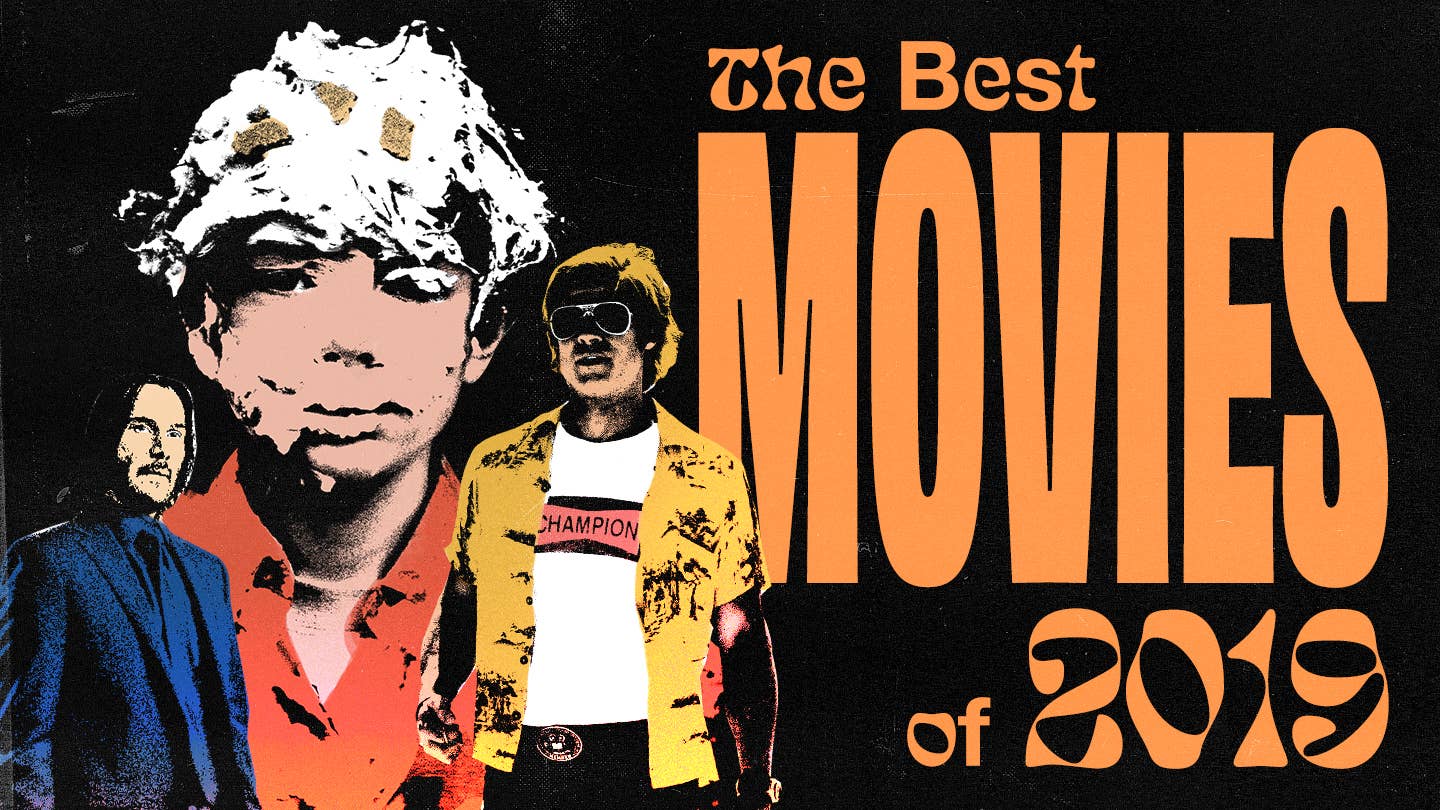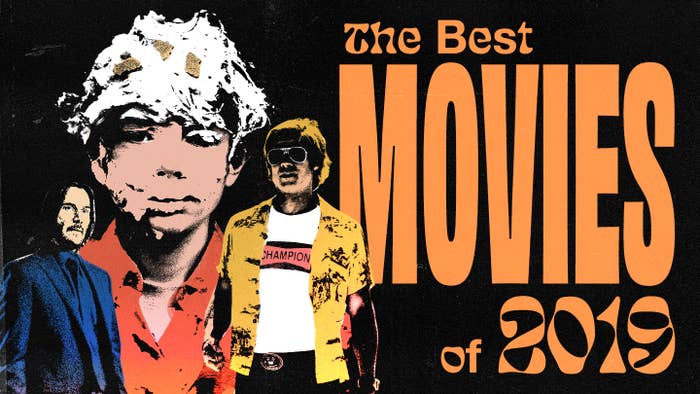
Looking back at what was considered the best of 2019 in film back during the middle of the summer makes the end of 2019 look absolutely amazing when it came to what hit theaters (and streaming services). Sure, we'd already survived Endgame, and John Wick came through and killed everybody for a third time, but like we told you back in the summer, AWARDS SZN was coming with a vengeance, and the way things shook out this year, we got plenty of stellar cinema moments this fourth quarter.
This year, more than others, has been relatively diverse in terms of what we're loving; the prerequisite costumed superhero tales make the cut, but we also saw Lena and Melina make magic together for the first time on the silver screen, while Rian Johnson survived The Last Jedi to bring forth one hilarious whodunit, and Jennifer Lopez gave what many are considering to be the best performance of her career in acting. And that's not even mentioning the work A24 put in this year. It's been a great one.
That said, here's our look at the best movies of 2019. Grab your popcorn, or at the very least figure out where you can stream or purchase these films.
25. 'Star Wars: The Rise of Skywalker'

Director: J. J. Abrams
Stars: Carrie Fisher, Mark Hamill, Adam Driver, Daisy Ridley, John Boyega, Oscar Isaac, Anthony Daniels, Naomi Ackie, Domhnall Gleeson, Richard E. Grant, Lupita Nyong'o, Keri Russell, Joonas Suotamo, Kelly Marie Tran, Ian McDiarmid, Billy Dee Williams
Studio: Lucasfilm / Walt Disney Studios
When everyone started going in on Rian Johnson a week or two before the release of The Rise of Skywalker, my only hope was that this movie was a four-alarm blaze. It was barely that, but if we all watched the same Force Awakens, I'm not sure how else people thought J. J. was going to end this sequel trilogy. While any time Adam Driver is on-screen as Kylo Ren, it's game time, the only other things that popped me as an audience member was Babu Frick. Dude's slick, and I kind of wish we'd known him longer. Sure, Rey's a Palpatine and Finn has some kind of Force abilities, but really, you can't complain about fan service in a film like Avengers: Endgame without calling out the tons of scenes done just to check off whatever box Star Wars fans need filled. It was fine, and hopefully means that we can start fresh with whatever Lucasfilm has on the docket for the future of this franchise. —khal
24. 'Jojo Rabbit'
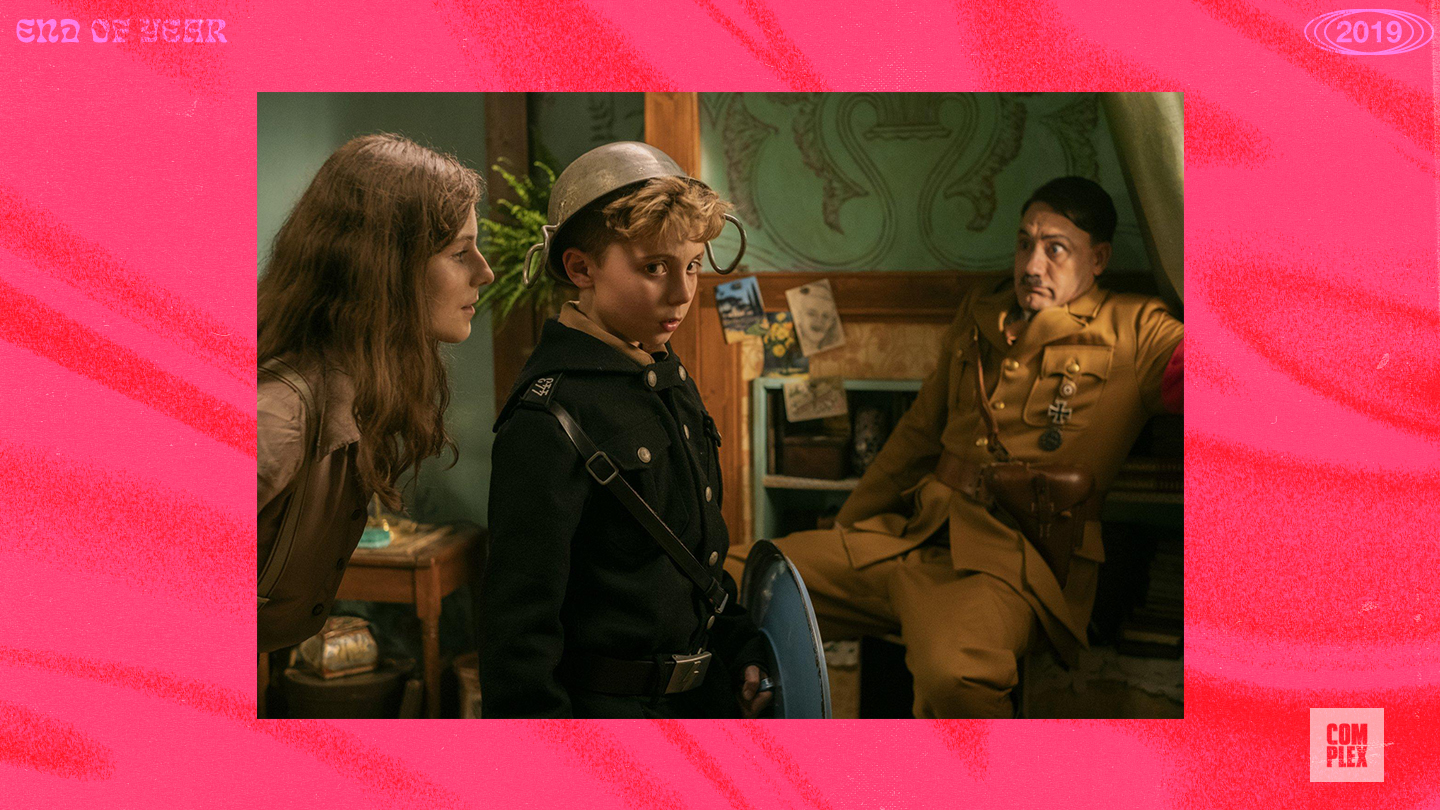
Director: Taika Waititi
Stars: Roman Griffin Davis, Thomasin McKenzie, Taika Waititi, Rebel Wilson, Stephen Merchant, Alfie Allen, Sam Rockwell, Scarlett Johansson
Studio: Fox Searchlight Pictures
Who knew that Taika Waititi as fake Hilter would be one of the funniest performances of 2019? Like a Wes Anderson movie set during World War II, Jojo Rabbit plays heavy on the satire to show you that Nazis are trash. Wrapped up in that simple premise is a coming of age story about Hitler's most excited Aryan child, Jojo (Roman Griffin Davis) and his mother (played by Scarlett Johansson) maneuvering in a world that doesn't take kind to Jewish people...which makes the young woman hiding out in Jojo's house quite the problem! What we end up getting is an off-beat, charming, and hilarious comedy that highlights the diamonds in the rough out there, in any situation...even Nazi Germany. —khal
23. 'High Flying Bird'
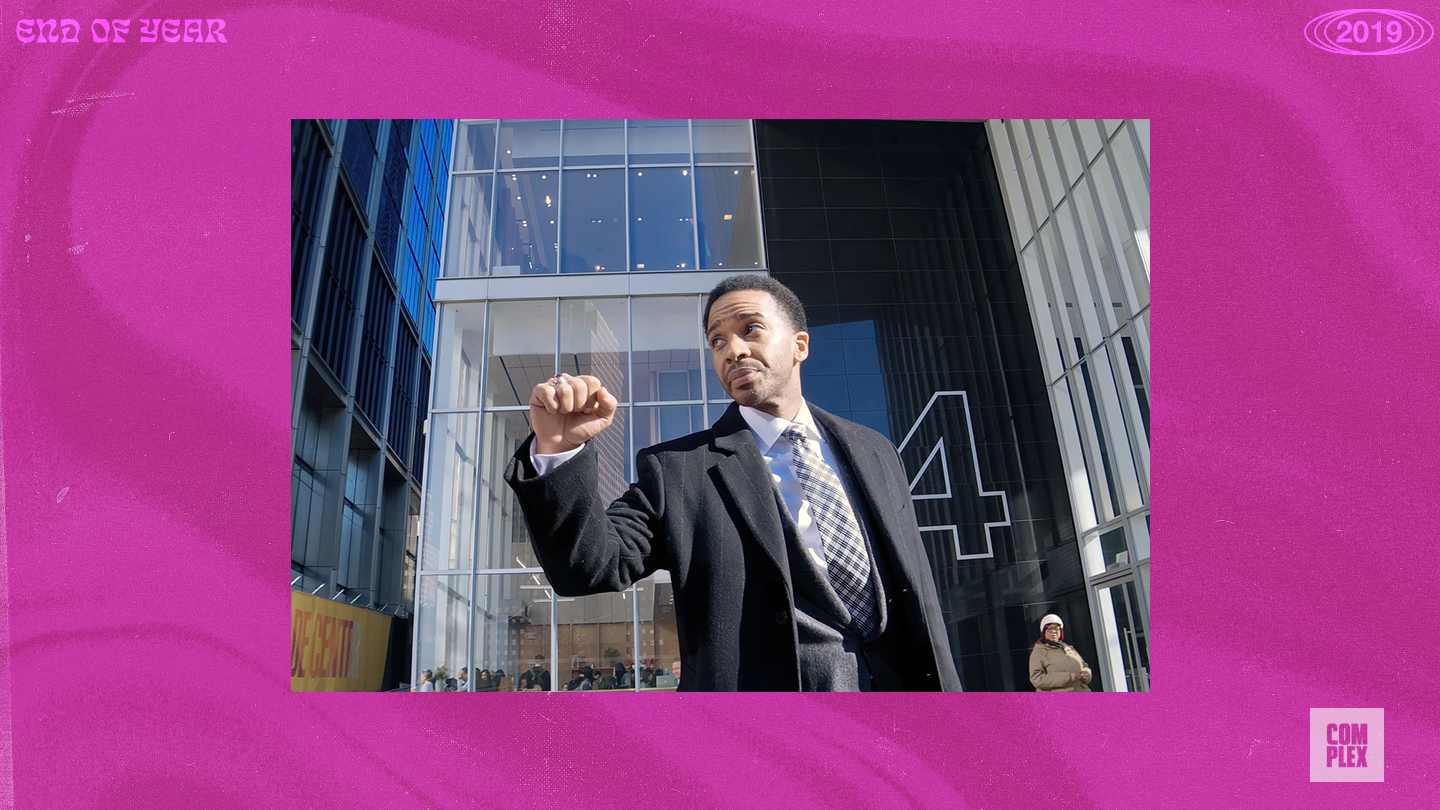
Director: Steven Soderbergh
Stars: André Holland, Zazie Beetz, Melvin Gregg, Sonja Sohn, Zachary Quinto, Kyle MacLachlan, Bill Duke
Studio: Netflix
In an era of massive CGI blockbusters, a film as simple and clean as High Flying Bird feels almost revolutionary. This is fitting because the creative forces behind the film are quietly advocating for revolution.
The simple yet expert construction of High Flying Bird has the same elegance of a perfect bounce pass or layup. Steven Soderbergh and his star André Holland clearly trust each other, and that trust means they don’t have to take any unneeded steps to tell the story they want to tell. They take a screenplay with high-minded ideals by the playwright Tarell Alvin McCraney (Moonlight) and execute the coach’s game plan with unadorned tenacity.
Superficially, the story is about a fictitious NBA lockout and agent Ray Burke’s (Holland) plan to end it. A simple goal complicated by the machinations of other power players, Burke’s crusade amount, more or less, to a heist film. Within the fairly straightforward structure, Soderbergh has the opportunity to explore race, money, sex, and power without wallowing in and glorifying the excesses of the professional sports world.
Beneath the machinations of the plot, this film is really about power and who wields it. Specifically, the players who make the on-court product do not have the power that their work creates. Any good Marxist knows where this is going. The brilliant screenplay by McCraney examines how professional sports offers us some of the best aspects of the American dream and some of the worst aspects of capitalism at the same time. While the NBA lifts Black men out of poverty, it also massively profits off of and exploits their labor. The heist at the center of High Flying Bird is so compelling because the film dares to consider the potential and challenges of actually seizing the means of production, and recognizes that the dream of revolution is easier dreamt than realized. —Brenden Gallagher
22. 'High Life'
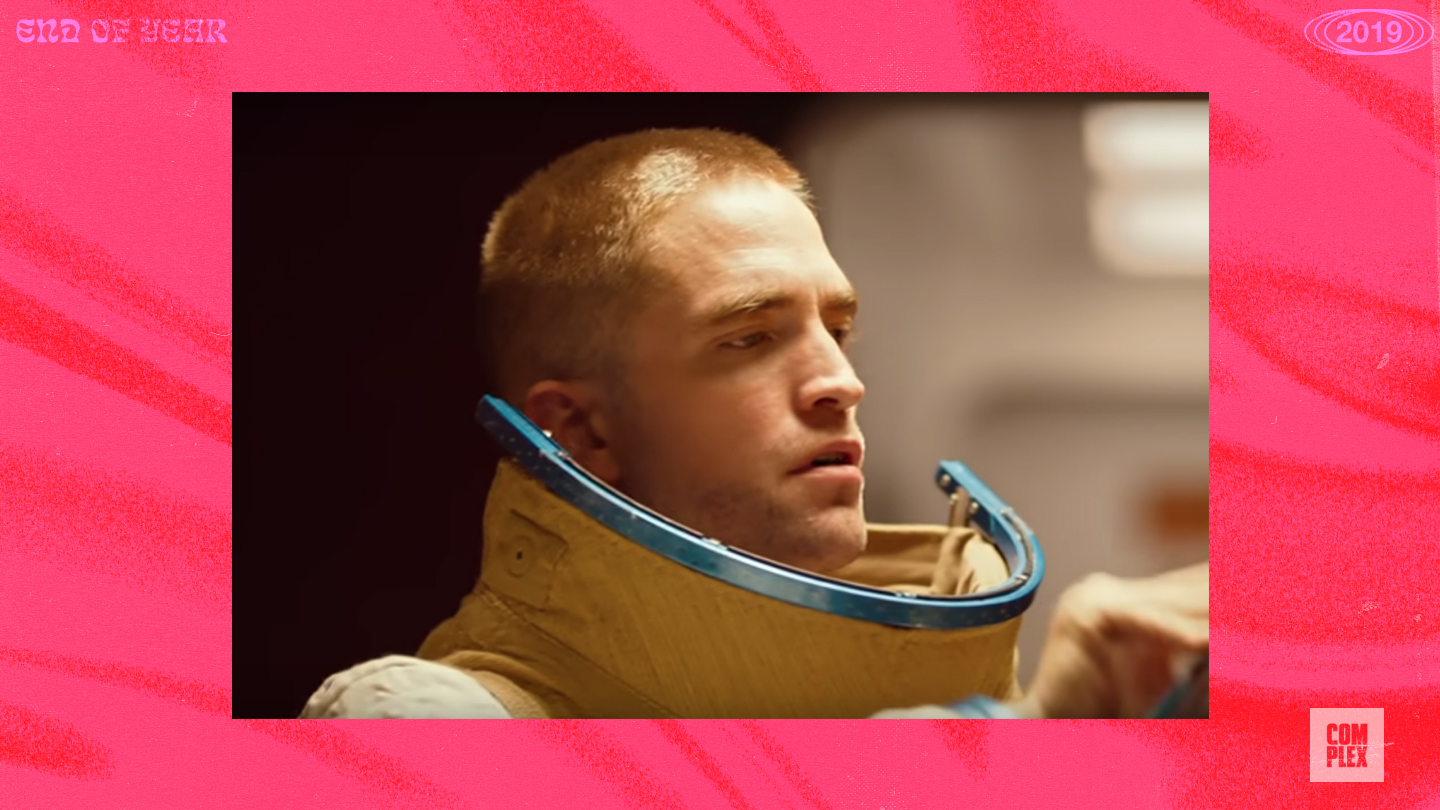
Director: Claire Denis
Stars: Robert Pattinson, Juliette Binoche, André Benjamin, Mia Goth
Studio: A24
I’m wasn’t sure what the fuck was happening in this movie most of the time, but I liked what the GOAT Claire Denis was on. High Life is a mindfuck that takes its time mindfucking you until the very end. There’s a baby on the ship, and everyone is dead except for her and Monte (Robert Pattinson). The story starts to make sense as they embed flashbacks here and there as Monte and the baby try to deal with life in seclusion on this spaceship that’s tumbling through nothingness. André 3000 pops up and sleeps in the garden, which makes sense in an André 3000 kind of way. There’s this doctor (Juliette Binoche) who is meant to look and act like a witch with her mysterious ways. There’s a scene where she’s having wild tantric sex in space in what Tcherny (3 Stacks) calls the “fuck box.” And she channels the devil (maybe?) after she puts a condom on a metal dildo.
High Life is aptly named because you have to be on some type of drug to make this. Just try not to smoke weed while peeping it unless you enjoy rewinding it every time you start to think about other shit, like snacks or where the Yankees are in the standings. Watch it, though, because Claire Denis makes nothing but art at its highest form. —Angel Diaz
21. 'The Farewell'
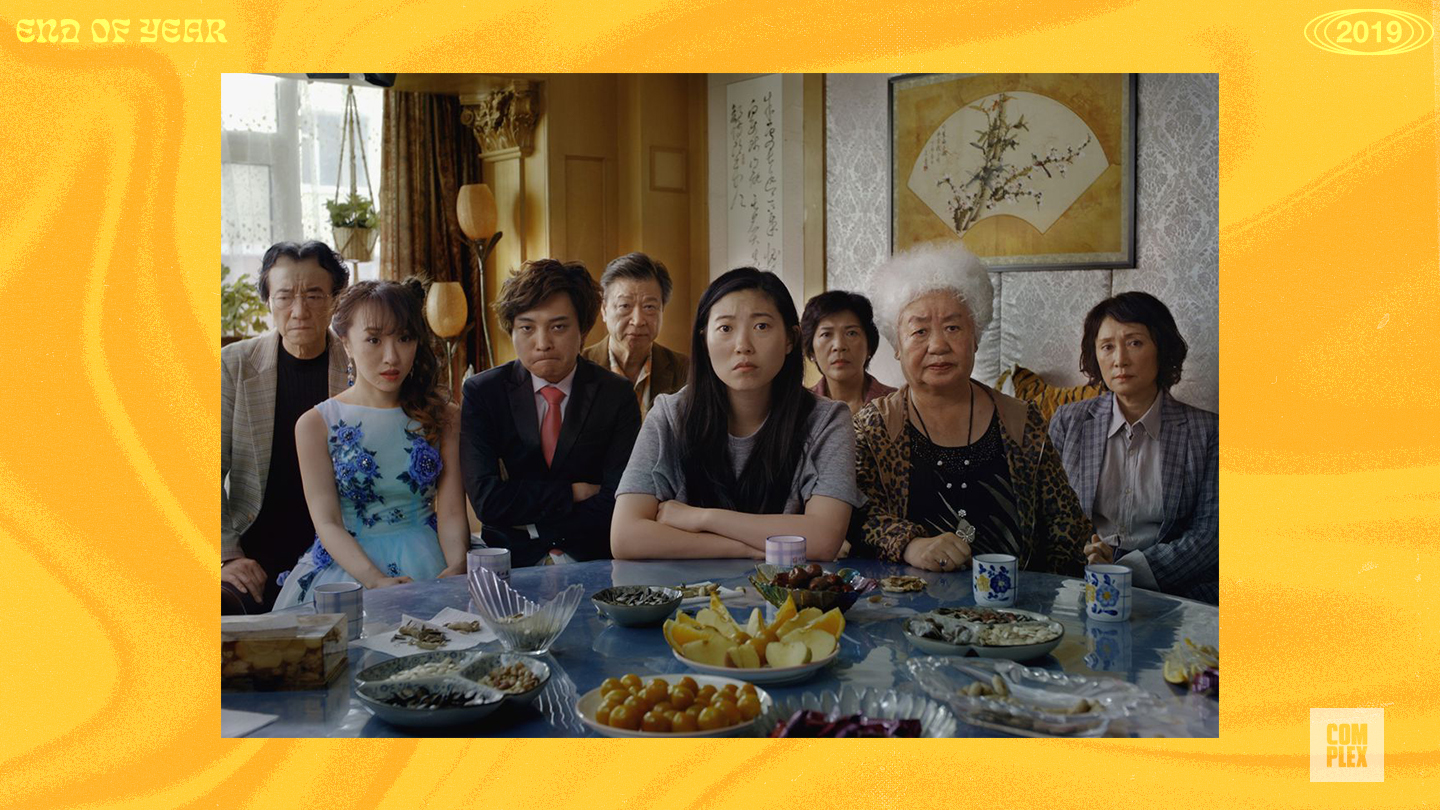
Director: Lulu Wang
Stars: Awkwafina, Tzi Ma, Diana Lin, Zhao Shuzhen, Lu Hong, Jiang Yongbo
Studio: A24
So much has been said about the compelling story of The Farewell and the buoyant breakout performance of Awkwafina that it feels necessary to focus our attention elsewhere as we continue to talk about the greatness of this film.
While it is egregious on its face that no women were nominated for the Best Director Golden Globe, the idea that what Lulu Wang achieved in this film is in any way less than what the other male nominees did in their work is ridiculous. Specifically, the idea that Todd Phillips’ sometimes clumsy and muddled direction of Joker was superior to Wang’s expert technical and creative direction of The Farewell is the biggest robbery in an awards season is sure to bring plenty of disappointment.
Wang is already a master of directing within the frame, despite the fact this is just her second feature. She tends not to cut, but rather opts to have her actors move within the shot, creating two shots, long shots, and close-ups without cutting. Wang understands that actors need time to explore emotional shifts within a scene and she generously lets them have it. In a film about the grieving process this approach isn’t just smart, it feels necessary.
Wang’s directorial style is perfectly suited to this claustrophobic story which shoves numerous family members who have been spread across the world into one small apartment to reckon with what has become of their relationships. The result of this pressure cooker technical approach is a film that is hilarious and heartbreaking, sweet and sad, swinging through poles of emotion with ease, always ready to smack you with a new and unexpected feeling.
Though Zhao Shuzen and Awkwafina will likely get the lion’s share of awards attention, there are a half-dozen actors from The Farewell you could nominate for the season’s acting awards. Wang seems to get the best work possible out of every single performer she sets her lens on. But more importantly, as a whole, the film creates one of the most compelling cinematic stories of loss, grief, and regret to hit the silver screen in memory. —Brenden Gallagher
20. 'Amazing Grace'
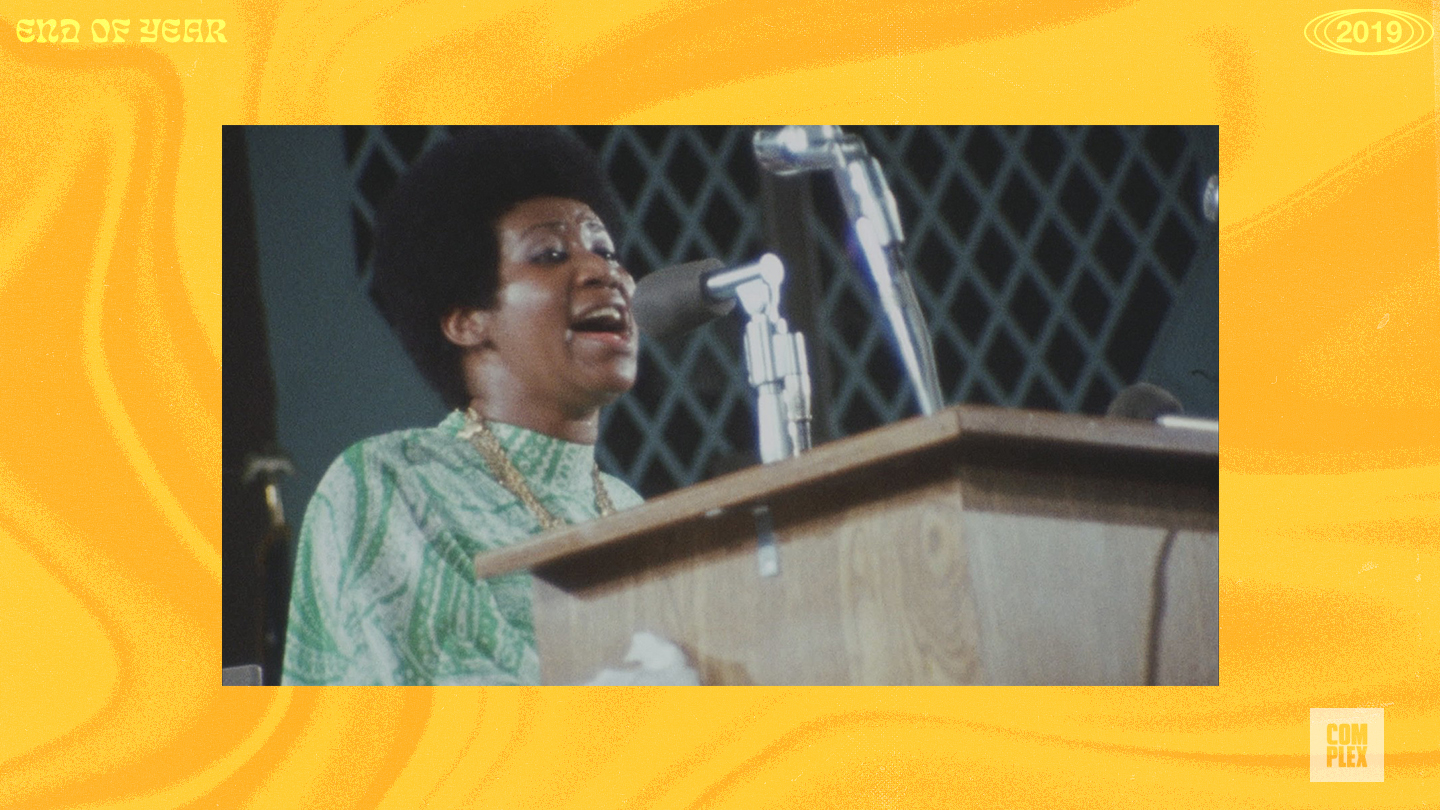
Director: n/a
Stars: Aretha Franklin
Studio: Neon / Time
It’s tough, in 2019, to put into context just how spectacular the live recording of Aretha Franklin’s Amazing Grace album was. Coming off a Grammy win for her classic, Gold-selling Young, Gifted and Black album, Aretha decided to put a pause on her career and return to her roots. She, along with the Southern California Community Choir, setup shop at the New Temple Missionary Baptist Church in Watts, Los Angeles and put on one of the most revelatory performances the genre had ever witnessed. Only issue was that only a handful of people got to actually witness it.
Filmed by Sydney Pollack with the intention of being released alongside the Grammy Award-winning double-disc album that became the best-selling gospel album of all time, it was shelved for a myriad of reasons including an issue with the audio and visual synchronization. But, 40 years later, with the help of producer Alan Elliott, the film finally saw a big-screen release. In it, audiences get to see a young Aretha at the height of her powers de- and reconstructing gospel standards. The film acts as a testament to the celestial talent that poured out of Ms. Franklin every time she opened her mouth.
If all this is not moving you much, imagine if, at the end of this prolonged break, Rihanna decided to return to her roots and came back with a live reggae album recorded in Jamaica that became the best-selling reggae album of all time. Crazy, right? Not as crazy as watching Aretha Franklin in her prime singing as if touched by an angel while an audience looks on in awe. If you need more context, ask Mick Jagger. He was there. —Damien Scott
19. 'Avengers: Endgame'
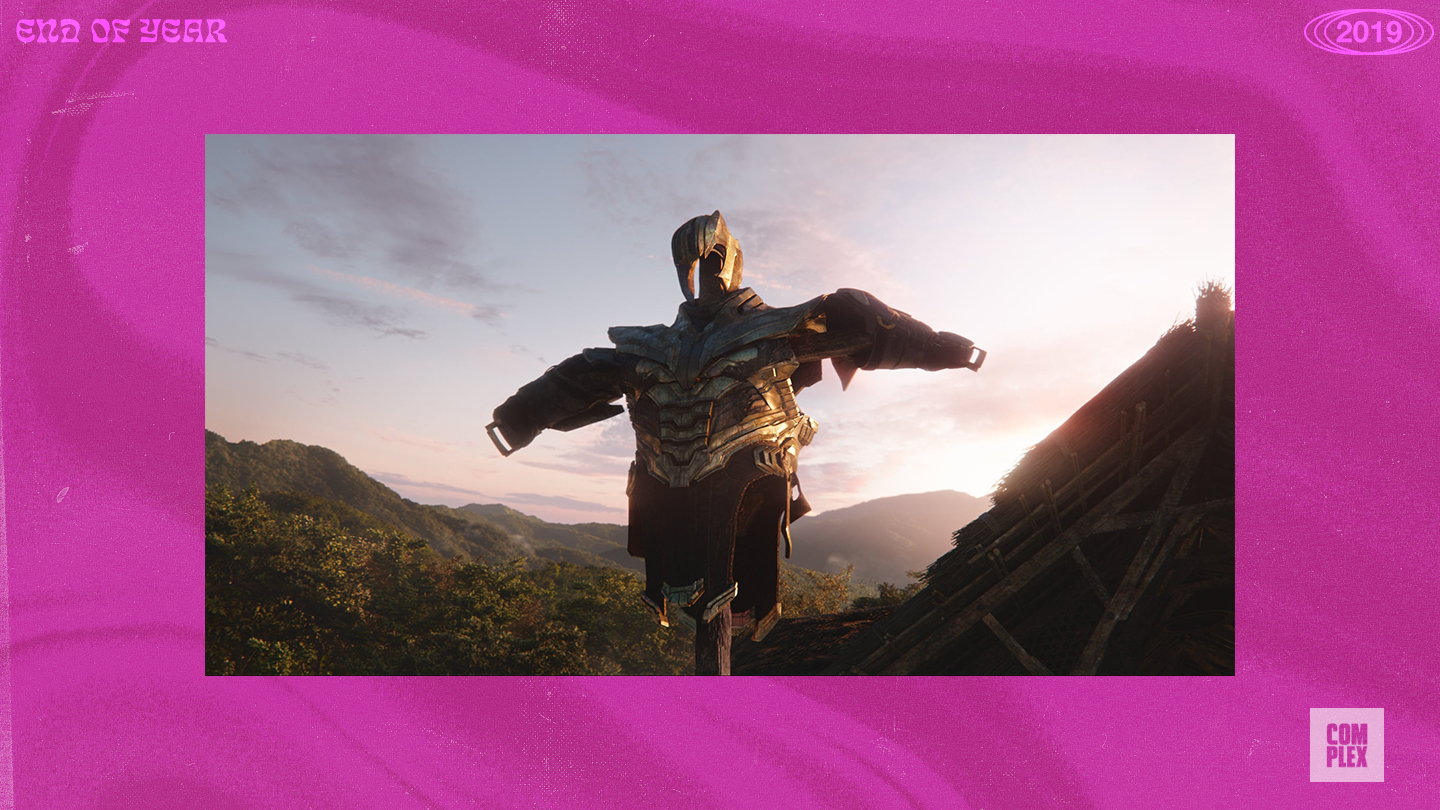
Director: Anthony and Joe Russo
Stars: Robert Downey Jr., Chris Evans, Mark Ruffalo, Chris Hemsworth, Scarlett Johansson, Jeremy Renner
Studio: Marvel Studios
Pour one out for the GOAT villain Thanos, who dies not once but twice for his Infinity War triumph in Endgame. Over the course of three-plus hours, we get a few different films. The first part of the film? Redemption. The heroes are looking to pick up the pieces of a world that Thanos broke with the snap of his fingers; once they find him and realize that he destroyed his tool of destruction (which they hoped would be the tool of Earth’s rejuvenation), it’s off with his head, and off on a journey to figure out how to live in a broken world. The entire second act is sorting out how to bring the world back to normal, which finds Marvel rewriting the rules of time travel (for better or worse) and letting Ant-Man do what he does best: go on a heist. Will everything work itself out? Of course it will; those “dead” heroes had films to make. The heroes win (while one truly sacrifices himself), and the changes from this final battle set the course for the future of the MCU.
Fuck all of that for a second, though. I knew we’d get a scene where all of the fallen would be avenged and back to do battle, but I didn’t expect to fall in love with Thanos all over again. What other Big Bad has the stones to stand tall in the face of the Avengers, broken and living out the rest of his life, and let them know that they are INEVITABLE?! What past version of the same Big Bad, in realizing what his future self does, watches THE PLAYBACK OF HIS FUTURE DEATH and SMIRKS? What Big Bad, who finds his way to the future in hopes of claiming the Infinity Stones once again, takes off his helmet, sits on a rock, and is like, “AYE GO GET MY STONES”?! And, finally, what Big Bad could take on the combined forces of Captain America, Iron Man, and Thor by themselves, with zero Stones on his person? The Mad Titan Thanos, that’s who.
Did he need to die? Of course. That was inevitable. That said, I hope Marvel has a serious plan for their next Big Bad; topping what Thanos did for the first three phases will be tough. Doable, but extremely tough. Long Live the Mad Titan. —khal
18. 'Queen & Slim'
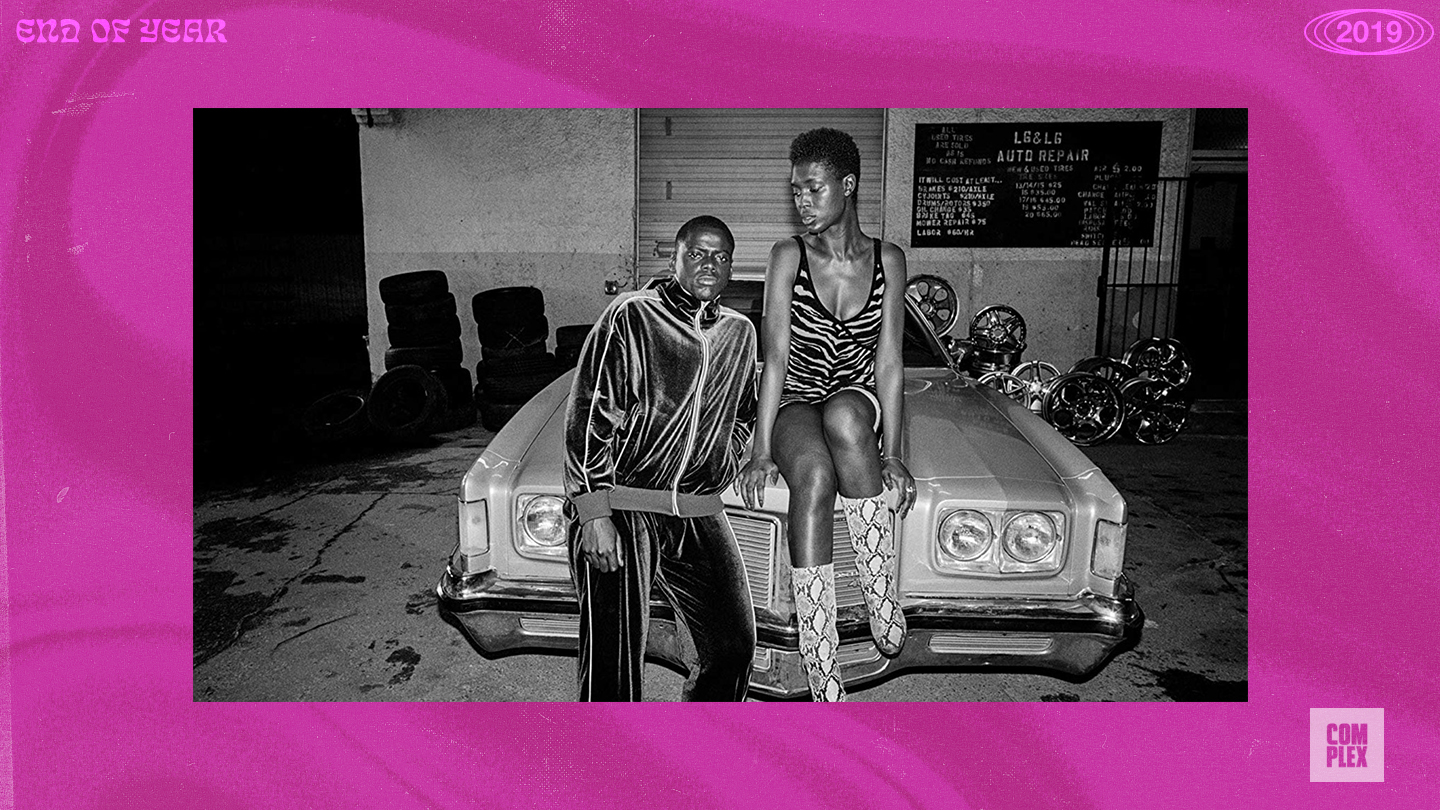
Director: Melina Matsoukas
Stars: Daniel Kaluuya, Jodie Turner-Smith, Bokeem Woodbine, Chloë Sevigny, Flea, Sturgill Simpson, Indya Moore
Studio: Universal Pictures
The beauty of Lena Waithe and Melina Matsoukas linking up once again (Matsoukas directed the Master of None episode "Thanksgiving" that Waithe won her Emmy for) for their collective feature film debut was felt before fans saw a second of film. Two of the biggest black voices in the world of entertainment, joining forces for a tale where a white police officer is gunned down by a black man and woman after their mid Tinder date, forcing the two of them to go on the run? Sign me TF up!
That said, the film this ultimately became, Queen & Slim, is too beautiful to sleep on, but isn't without fault. Matsoukas crafts a hazy mixtape of a film, bringing us extended dance sequences in safe haven nightclubs and treats the American landscape as beautifully as the act of braiding (and cutting) hair. Lena's cooked up an intriguing premise, with the intensity built right into the film's opening sequence. That said, this feels like their first film—I can't help but wonder if we needed all of those moments where characters had internal monologues together while no one is speaking, and don't get me started on the sex scene that features cuts to a young black boy murdering a police officer, which barely gets a mention later in the film. It unfolds predictably, but the beauty of which Queen and Slim's relationship is built had us all rooting for them in the film's closing moments. —khal
17. 'Joker'

Director: Todd Phillips
Stars: Joaquin Phoenix
Studio: Warner Bros. Pictures
Listen, I ride for superhero movies. I show up opening night with all the grown men in capes, and even have a Disney+ subscription (or at least someone else’s login). But at the same time, I’m also a film geek, and I’ve got to agree with the boy Marty—Personal journeys and in-depth character exploration are disappearing facets of modern cinema. That’s why when I heard they were making a Joker origin story I couldn’t help but ask why. Why take the marquee space away from another unseen story, only to go and do what’s been done in countless Batman flicks before? Then I peeped it for myself, and I totally understood.
The plot twists of Nolan, the action of Snyder, the clown prince of crime portrayed by Nicholson and Ledger are all relegated to the background if not completely omitted. Normally I’d walk out of a movie so thin on plot wishing I’d been given more, but those movies don’t have Joaquin Phoenix. With hands down the best performance of 2019, and possibly Phoenix’s career, whatever worries you had about this being a Dark Knight lite are quickly extinguished, leaving no doubt about The Joker’s true focus: Arthur Fleck.
For the next two hours, Phoenix and director Todd Phillips take you on a journey along the darkest edges of human nature in order to find exactly what turns a man into a monster. This mental maze proves to be as intricate as any physical one Nolan ever laid before us, allowing Joker to ferociously dissect its subject and the genre itself. The result: The first-ever superhero prestige piece, and a film that tops 2019’s must-see. —Nate Houston
16. 'Marriage Story'
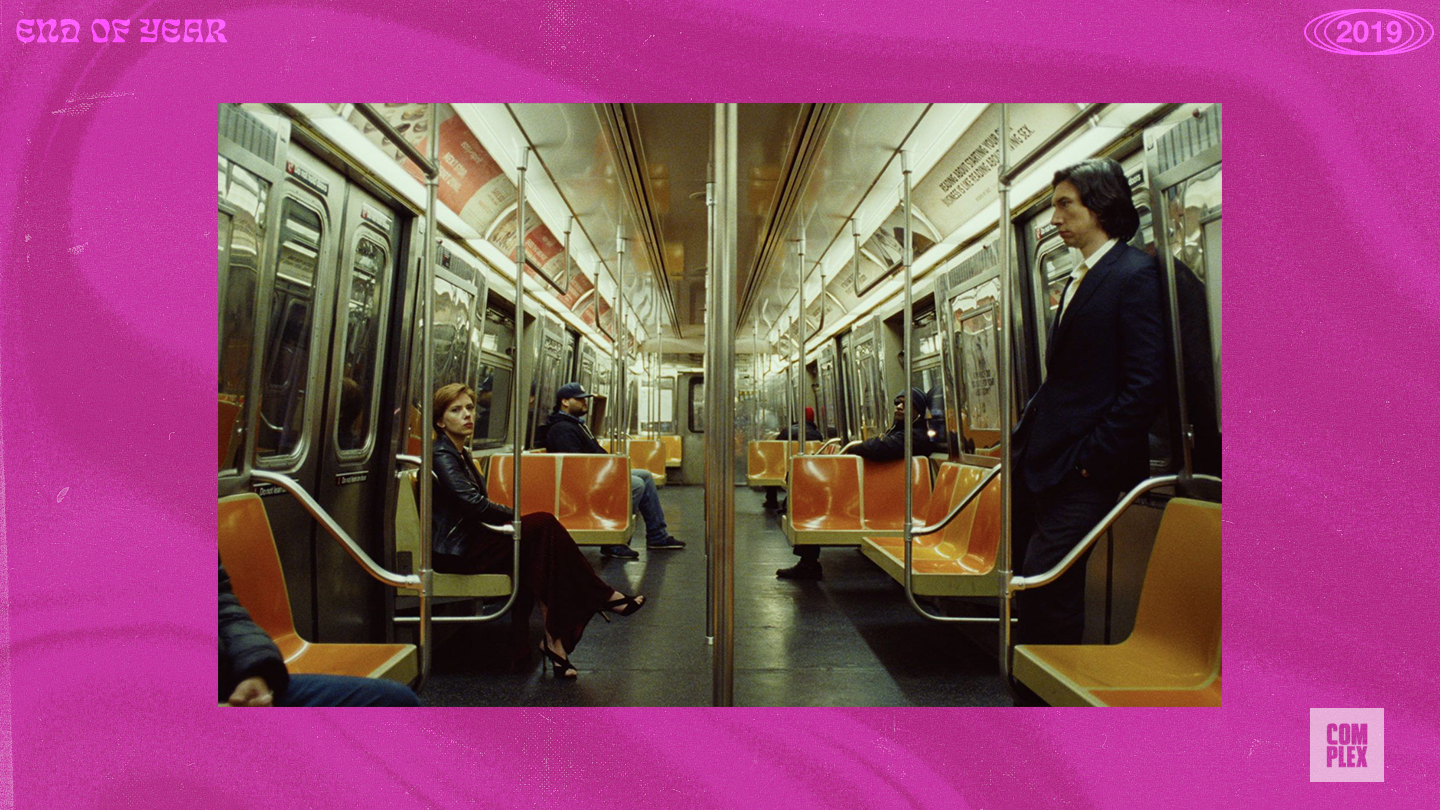
Director: Noah Baumbach
Stars: Scarlett Johansson, Adam Driver, Laura Dern, Alan Alda, Ray Liotta, Julie Hagerty, Merritt Wever
Studio: Netflix
The premise of Noah Baumbach’s Marriage Story, a story of a couple’s marriage unraveling into an acrimonious divorce battle, is not necessarily a new one. But watching Adam Driver and Scarlett Johansson consistently swing back and forth between strained friendliness and rage is a fascinating observation of the interwoven moments of pain and joy in a relationship. Charlie (Driver) and Nicole (Johansson) initiate their divorce on amicable terms, setting aside any brewing resentment in order to facilitate a stable transition for their young son. It’s the ideal way to proceed from a breakup and move on. But rarely can even our most desired expectations go the way that we want them to. Emotions come into play, hawkish lawyers get involved, dirty courtroom tactics are used. Marriage Story pays attention to the ugly moments that define a relationship as much as the beautiful ones. —Andie Park
15. 'Ford v Ferrari'
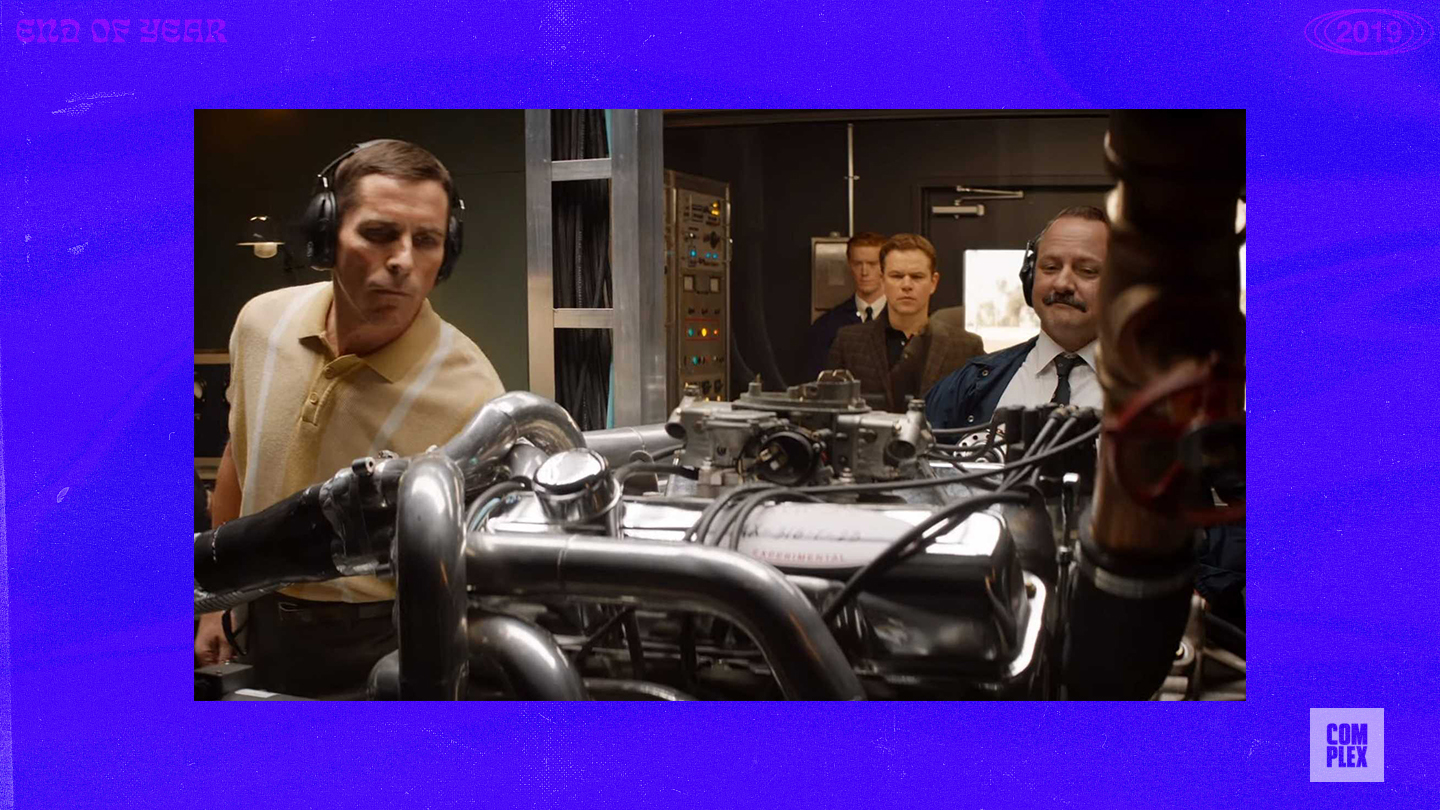
Director: James Mangold
Stars: Matt Damon, Christian Bale
Studio: 20th Century Fox
It feels like it's been a bit since we had a fire racing-oriented film like Ford v Ferrari. Then again, we don't normally get Christian Bale (who's already nominated for the Golden Globe Award for Best Actor – Drama and the Screen Actors Guild Award for Outstanding Performance by a Male Actor in a Leading Role) and Matt Damon driving through the real-life story of the Ford GT40, which was made to kick Ferrari's ass at the 1966 24 Hours of Le Mans. It does exactly what it needs to do: give you an engrossing two-and-a-half-hour film full of Bale and Damon being the champs they are, surrounded by loud AF automobiles. What more could you want in a film, honestly? —khal
14. 'Hustlers'
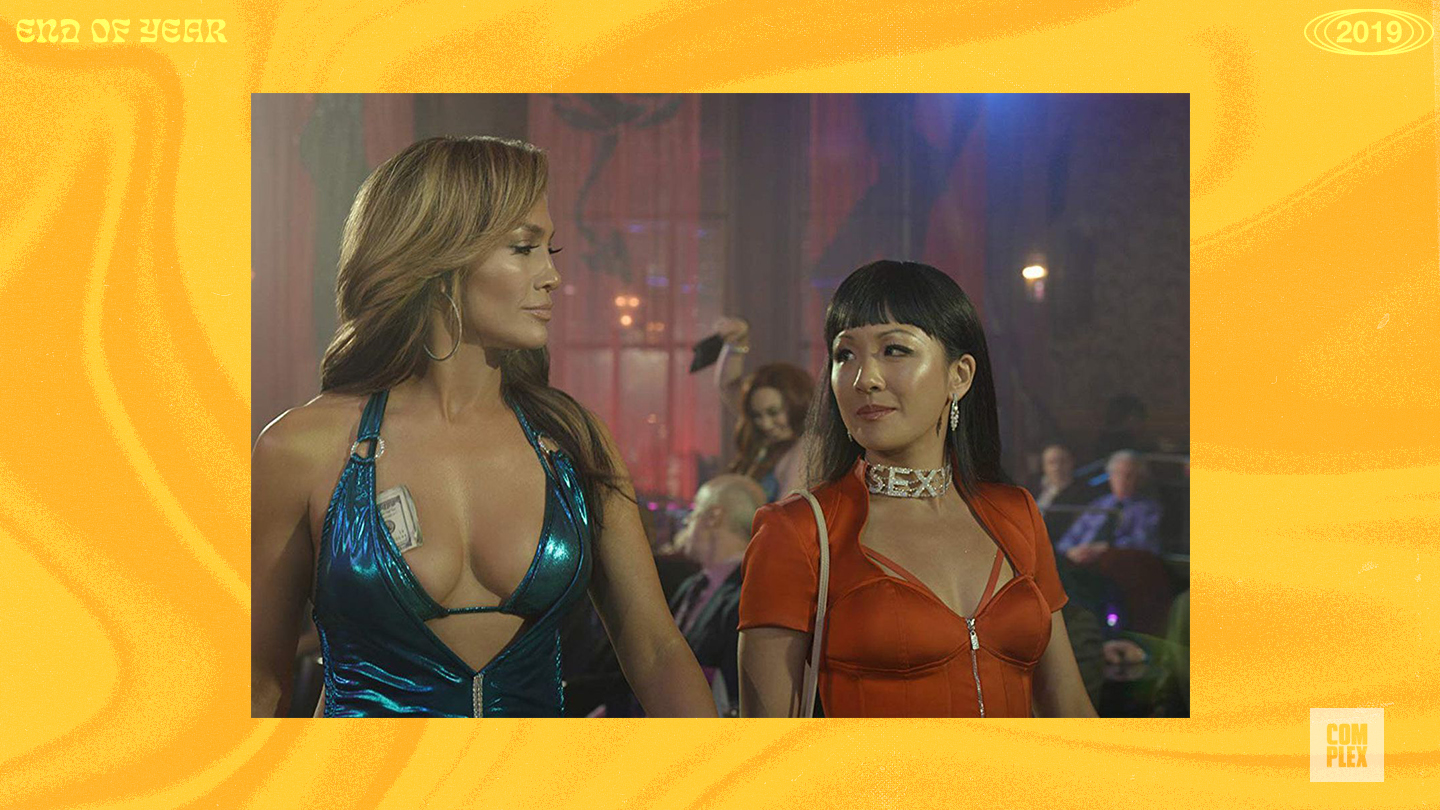
Director: Lorene Scafaria
Stars: Constance Wu, Jennifer Lopez, Julia Stiles, Keke Palmer, Lili Reinhart, Lizzo, Cardi B
Studio: STXfilms
Simply put, Hustlers is damn good fun. It’s an unfiltered, unapologetic jolt of energy that makes every moment feel like a rush of empowering ecstasy. Writer and director Lorene Scarafia takes an inverted look at the male gaze - showing how the women tactfully use the male gaze to their advantage. With their sexuality, physicality, and sheer wit, these women lure their male clients into a drug-induced stupor and drain their bank accounts without so much as a hint of guilt. But Taking place after the 2008 financial crisis, Hustlers presents the argument that the real scammers are the men that force these women to conduct illegal schemes. We take a closer, slow-motion look at the victims - (primarily) rich older white bankers who walked away from the crash without consequences and went straight to the strip clubs, credit cards ready to go as they plan their next scheme.
One of Hustlers’ greatest strengths is Jennifer Lopez in her role as Ramona, the maternal ringleader, who brings such commitment and charisma that her presence defines the badass energy of the film. No one could have played the role of Ramona other than J.Lo herself, only a superstar could possess the confidence to pull off such a risky scheme that would bring these women to success but also have the hubris to keep the scheme going even in the face of an inevitable downfall. It’s that resilience, that hustle, that makes drives the film’s emphatic storyline work. —Andie Park
13. 'Honey Boy'
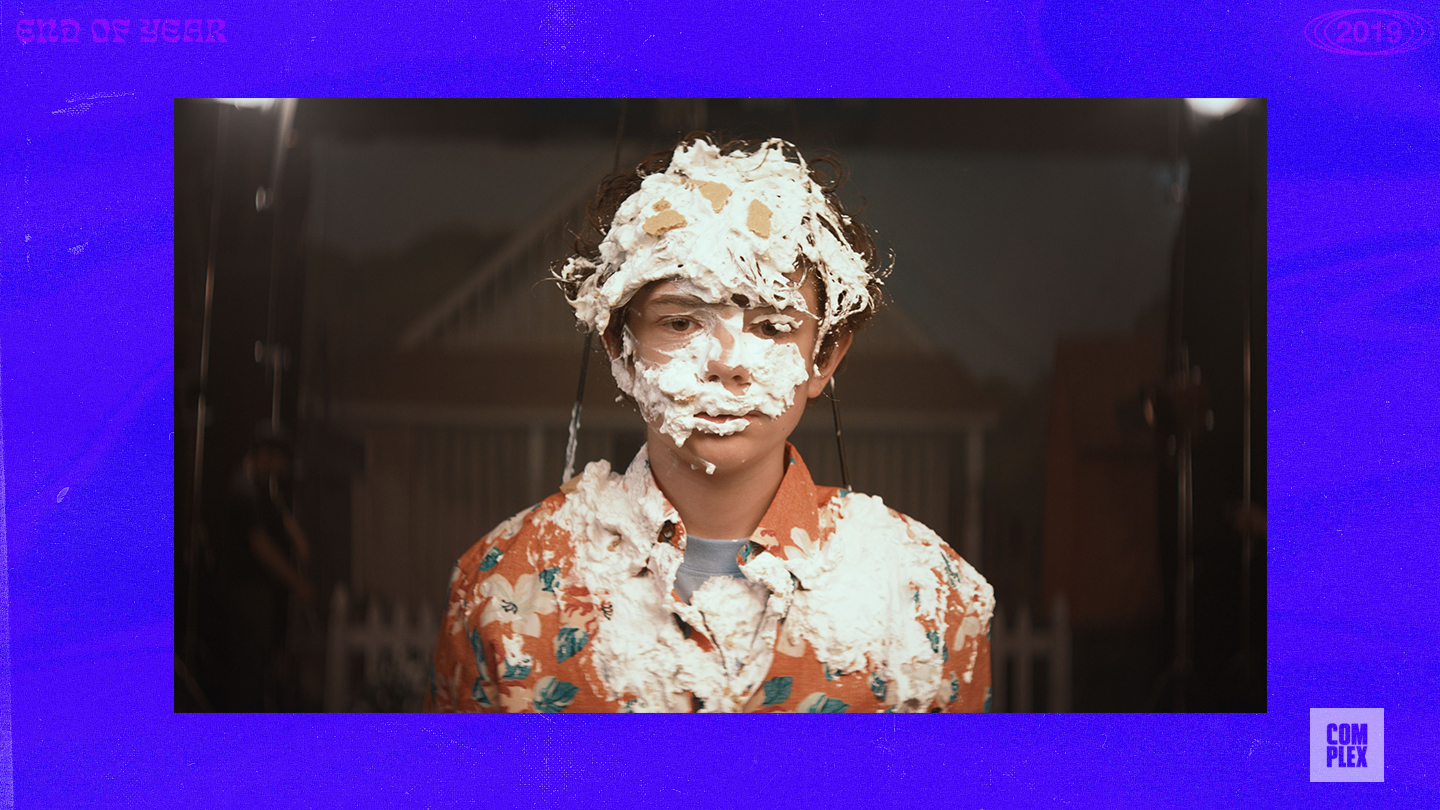
Director: Alma Har'el
Stars: Shia LaBeouf, Lucas Hedges, Noah Jupe, FKA Twigs
Studio: Amazon Studios
Sometimes a film can live or die on the strength of a single performance. In the case of Honey Boy, one actor is the film. Shia LaBeouf both wrote the script for Honey Boy and stars as his own father in the deeply autobiographical story of a young man in rehab looking back on his childhood as an actor managed by his drug-addicted abusive father.
The rehab sequences have interesting moments as the adult “Otis,” played by Lucas Hedges, reflects on his life and his father. But, this section of the film is imminently forgettable. It is the flashbacks, dominated by LeBeouf’s frustrated, angry, and pathetic “James” that make the film special.
Honey Boy is by no means a perfect film. First time director Alma Har’el is at her best when she simply gets out of the way of LeBeouf and his compelling young co-star Noah Jupe. When the directing does more than merely document, misguided dream sequences, and clumsy love scenes verge on incompetence. The other actors, like the promising but green FKA Twigs, are practically begging for more hands-on direction. However, when the camera simply lets Shia channel his father and interact with his son, this film is magic.
It might be more accurate to call Honey Boy a character study or psychological portrait than traditional a narrative film. We are literally and figuratively watching an hour-and-a-half long therapy session for LeBeouf, who clearly has a lot of shit to figure out. And while not a lot happens in plot terms, we are certainly taken on a journey.
This is all more compelling than it sounds. It’s hard to think of an actor with more power on-screen working today than Shia LeBeouf. With a tenacity that evokes a young Marlon Brando, LeBeouf is mesmerizing from start to finish. To watch him work is a real cinematic pleasure.
You can’t help but leave Honey Boy hoping that a great director will have the opportunity to rein in Shia’s excesses and coax his best work out of him. In the meantime, we should be happy to settle for the chaotic, uneven power of a film like Honey Boy. —Brenden Gallagher
12. 'Midsommar'
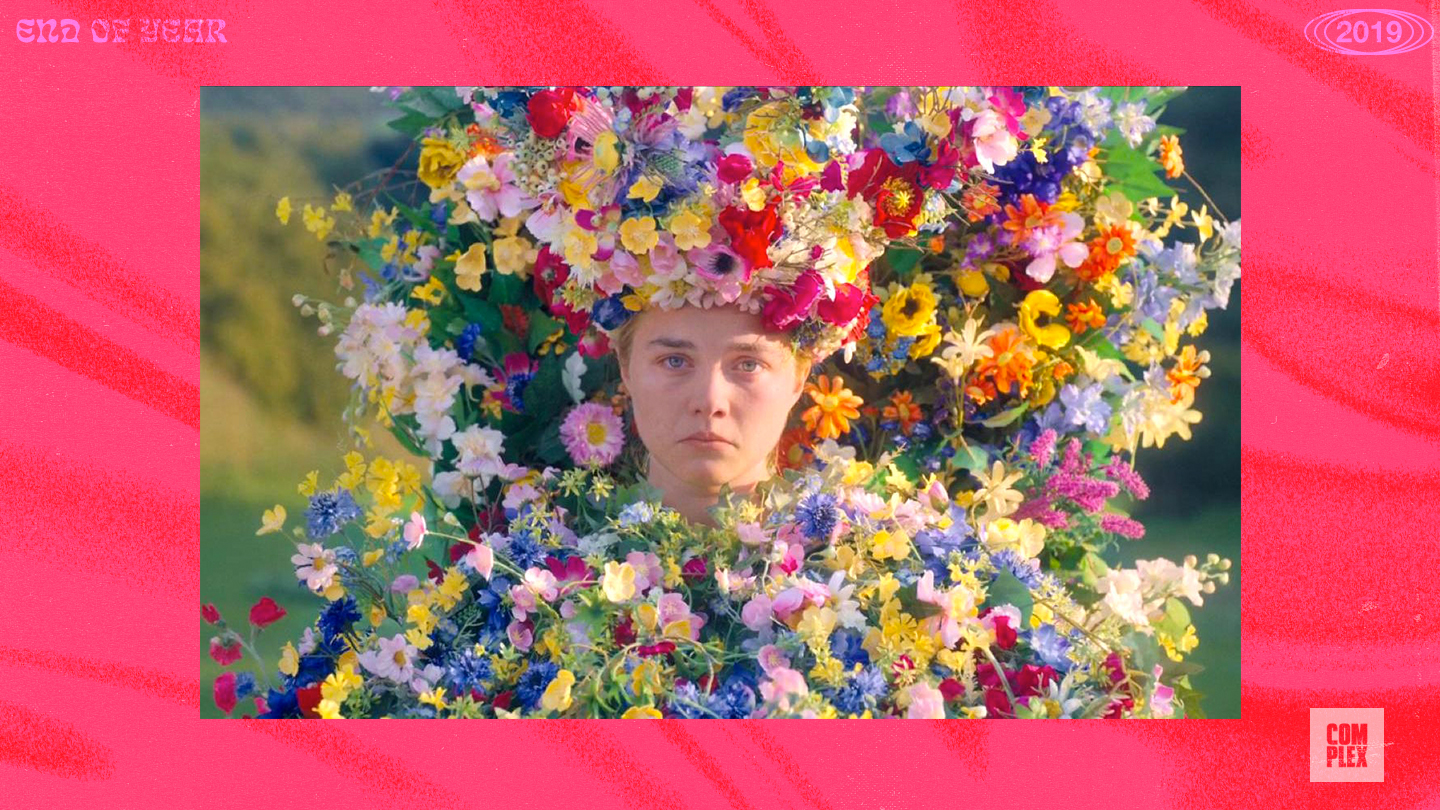
Director: Ari Aster
Stars: Florence Pugh, Jack Reynor, William Jackson Harper, Vilhelm Blomgren, Will Poulter
Studio: A24
Leave it to Ari Aster to convert the concepts of sunshine, Sweden, and flower crowns into one of the most disturbing films of the year. Sure, Aster has emphasized that Midsommar is a breakup film at its core, but it’s also a modernized tale of folkloric torture. It’s not the common gorefest that we’re conditioned to expect from horror films. The heavenly vibes of the Swedish commune and the summer solstice mimic the feeling of a seemingly never-ending psychedelic trip gone wrong. One that slowly unravels into a disturbing nightmare that feels impossible to escape. It’s “elevated horror”—a genre that is driven more by human emotion than a need to provide cheap scares. In this case, Midsommar’s use of Dani’s family tragedy and her doomed relationship with Christian are a case of proving grief as a form of horror, an overwhelming emotion that can drive people into the craziest frenzies. Watching Dani ugly scream cry with a group of Swedish women after discovering her boyfriend’s infidelity is far more disturbing than a jump scare from a B movie. Midsommar is terrifying not just in its moments of violence, but also because of the all too human emotions that drive them. —Andie Park
11. 'Booksmart'
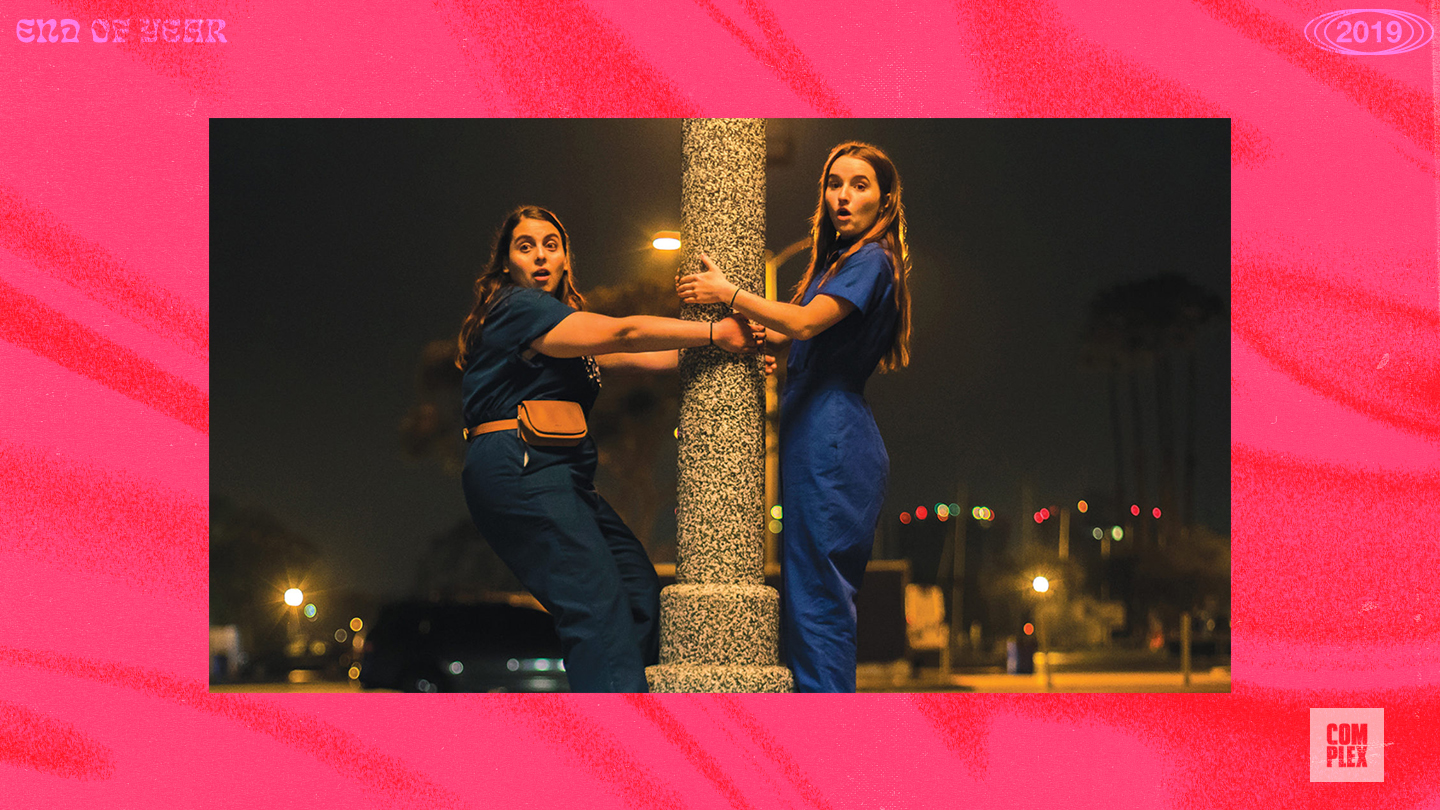
Director: Olivia Wilde
Stars: Kaitlyn Dever, Beanie Feldstein, Jessica Williams, Lisa Kudrow, Will Forte, Jason Sudeikis
Studio: Annapurna
In my opinion, there can never be a dearth of high school comedy films, which are essentially a nostalgia-fueled exercise in reclaiming our youth. Olivia Wilde’s directorial debut is a hilarious and endearing look at two overachieving high school best friends Molly and Amy (played by Beanie Feldstein and Kaitlyn Dever, respectively) attempting to squeeze all of their bad behavior into the night before graduation. What ensues is a raucous ride that celebrates the realest moments of a young and intimate friendship. The chemistry between Feldstein and Dever is so energetic and vulnerable that they remind us of the most complicated, yet joyful, aspects of friendship. It’s a heartfelt journey that feels as cathartic as the last day of high school. —Andie Park
10. 'Waves'

Director: Trey Edward Shults
Stars: Kelvin Harrison Jr., Lucas Hedges, Taylor Russell, Alexa Demie, Renée Elise Goldsberry, Sterling K. Brown
Studio: A24
Waves is a real thinker. Watching the film initially, I was annoyed. It was a mixture of Shults using the 360-camera thing a few too many times in the beginning, the dated (and obvious) song selection, and how the first half of the film wrapped up its story that confused me. I love Kelvin Harrison Jr., who put in work this year, especially when he's verbally jousting with Sterling K. Brown. Adding in Euphoria queen Alexa Demie to the mix was perfect—until it wasn't. Then a funny thing happened midway; Taylor Russell had to pick up the pieces of a broken family, put the entire film on her back, and let the second-half of Waves really shine. It made me re-think my thoughts about the first half, and more than made up for an important film in a year of Gen-Z rage and frustration being documented and dissected on-screen. —khal
9. 'Spider-Man: Far From Home'
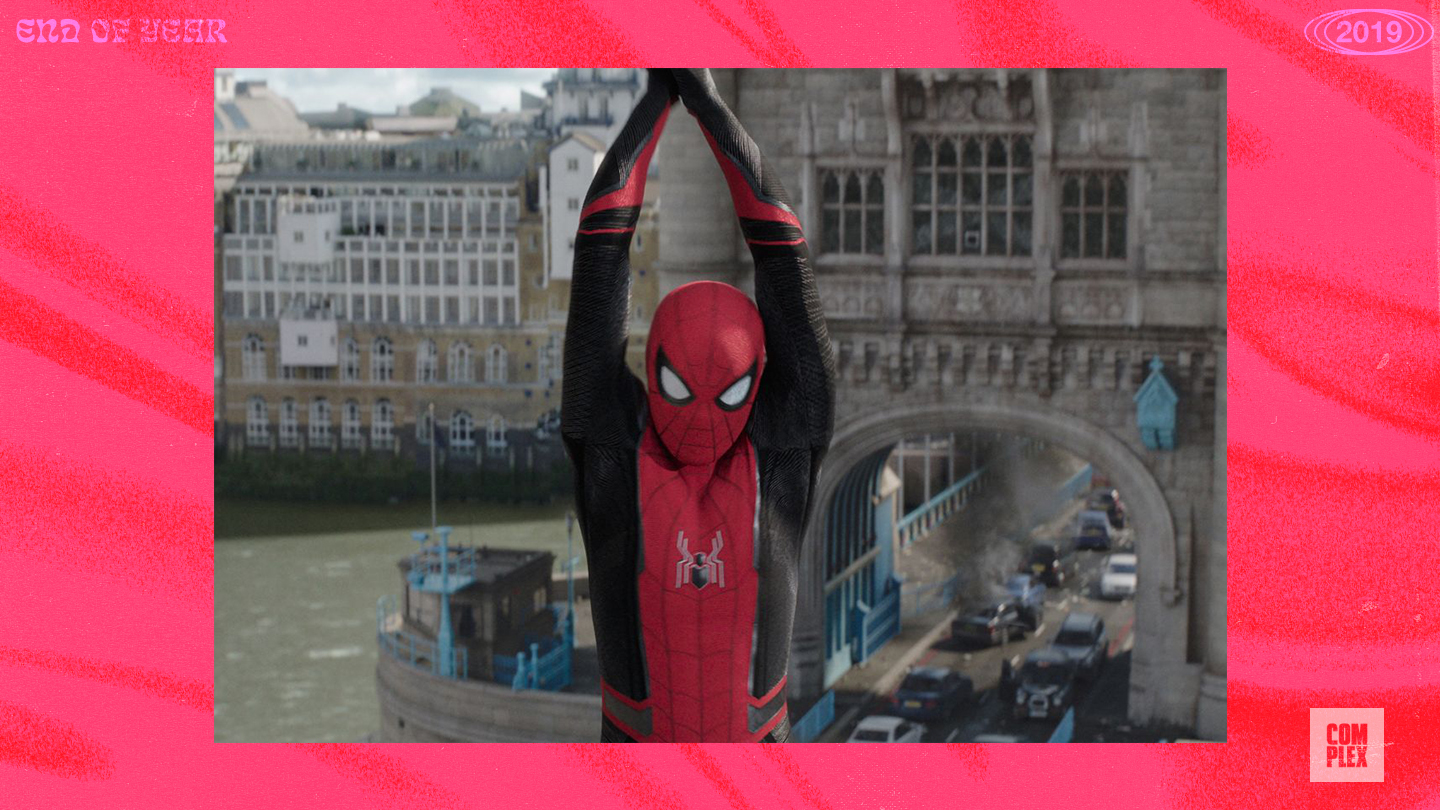
Director: Jon Watts
Stars: Tom Holland, Samuel L. Jackson, Zendaya, Cobie Smulders, Jon Favreau, J. B. Smoove, Jacob Batalon, Martin Starr, Marisa Tomei, Jake Gyllenhaal
Studio: Sony Pictures Releasing
WIth Disney and Sony putting their Spider-beef to the side for the forseeable future, it's dope to look back at what could've been the last film Peter Parker referenced the MCU in. Picking up the pieces from Endgame, it felt at times like a film designed to give Robert Downey Jr. his last hurrah after peacing out in Endgame. It also helped established Parker as the best heir to Tony Stark's legacy; he's the wise, persistent young man who will stop at nothing to save the good of humanity. While Far From Home had a twist many saw coming a mile away, Gyllenhaal played mysterio perfectly, almost too-perfectly; I don't remember caring about Mysterio this much in the comics. And let's not forget that, if you add in Euphoria, Zendaya kinda owned the summer of 2019 for her demo. Tom Holland, as per usual, needs to be at the head of whatever the new Avengers-esque team is going to be. Until then, don't change anything about this iteration of Peter Parker. Holland's got this one sewn up perfectly. —khal
8. 'Good Boys'
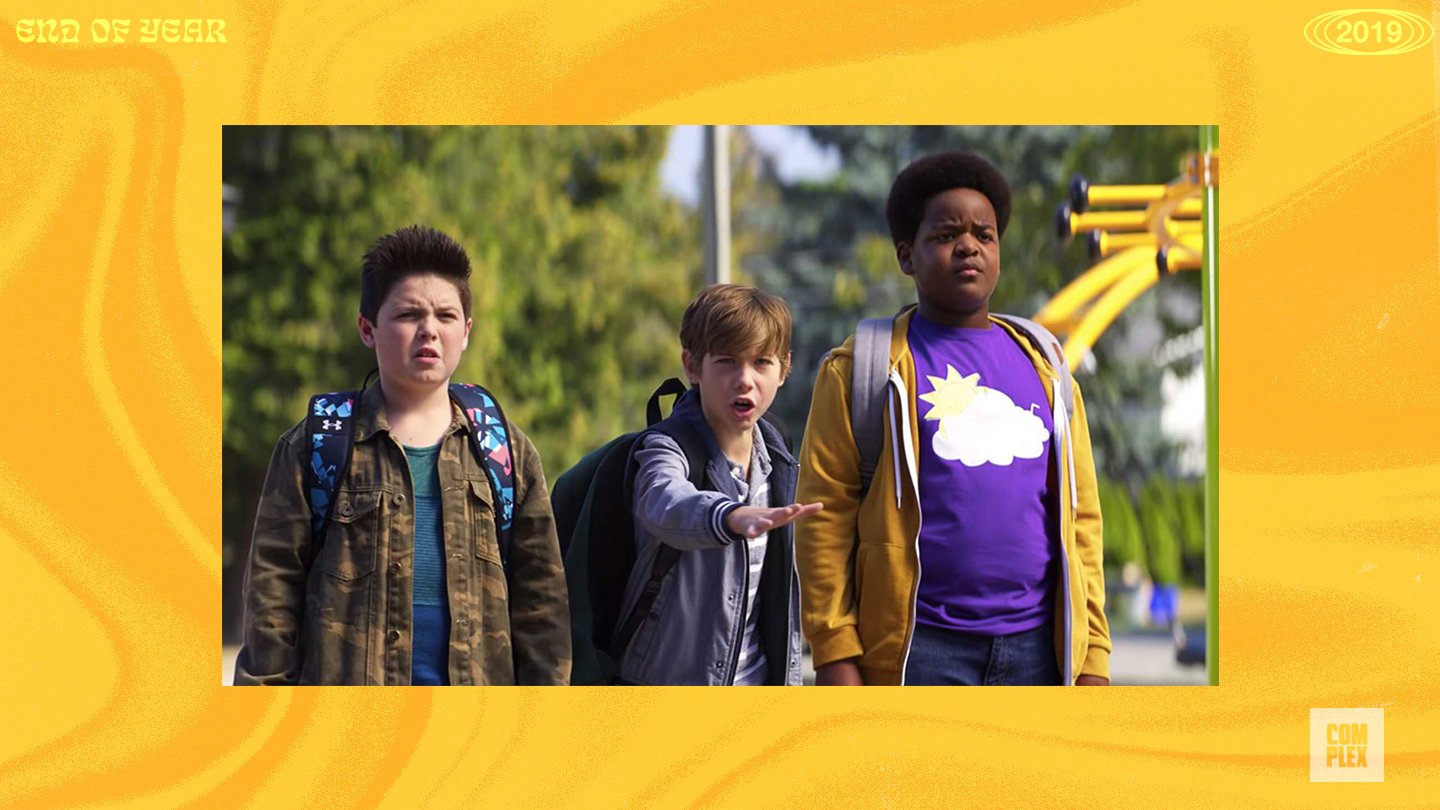
Director: Gene Stupnitsky
Stars: Jacob Tremblay, Keith L. Williams, Brady Noon, Molly Gordon, Lil Rel Howery, Midori Francis
Studio: Universal Pictures
Supercharged-Superbad, Scholastic Book Club Booksmart; get all of the "Good Boys is just like..." jokes out of the way now. It's funny to think those up, but let's keep it real: Seth Rogen's Good Boys is better than that. Set around a trio of sixth graders (led by Jacob Tremblay), we get one of the smartest slapstick "boys behaving badly" films you've ever seen, especially when you consider how much the topic of consent is involved. The Bean Bag Boys want to get to the kissing party, but somehow have to fix a drone and cop some Molly before they do it. Didn't say this film was rocket science, but you have to applaud a movie that creates characters who are so wholesome yet so clueless, and still give them morals and tell a real tale about the ties that bind us together, and what happens when we grow apart. It also helps that the replay value on this flick is through the roof. Bean Bag Boys for Life! —khal
7. 'The Last Black Man In San Francisco'
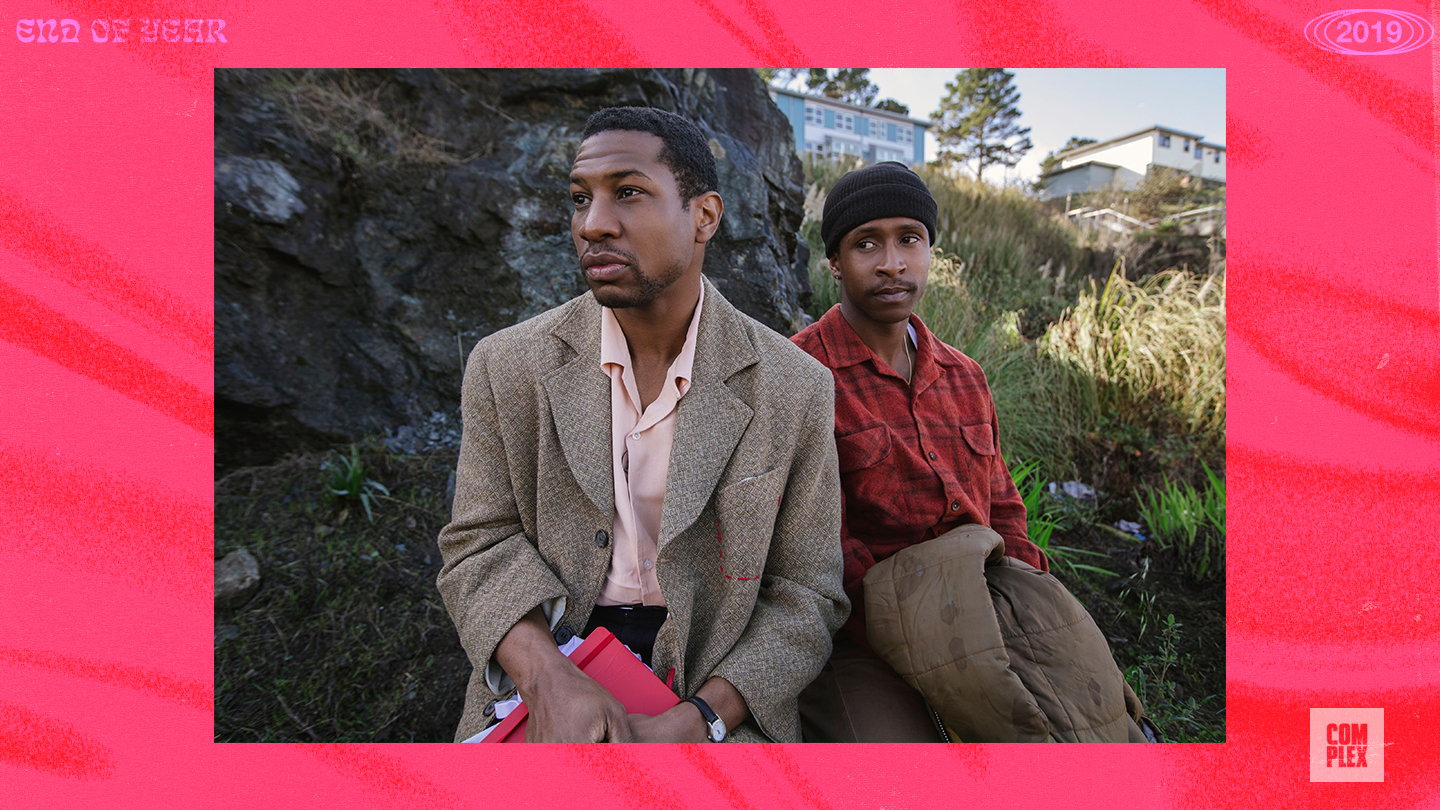
Director: Joe Talbot
Stars: Jimmie Fails, Jonathan Majors, Danny Glover, Tichina Arnold, Rob Morgan, Mike Epps, Finn Wittrock
Studio: A24
To say that The Last Black Man in San Francisco is about gentrification might make it sound dry or academic. Amazingly, the film manages to tell a story about urban displacement that is emotional and intimate while also concerning itself deeply social and political.
But, the film truly is about gentrification, giving the wonky arguments raging across the country about rent control, development, and NIMBY-ism a human face. More deeply, the film also asks us to consider what it means to have a home, how deep our roots need to be in a community before we can lay claim to it, what say we have as communities change, and whether or not we can ever truly have a home at all.
Smartly, director Joe Talbot uses touches of magical realism to infuse a story that could be cold and dry with a sense of whimsy and joy. Shots of men in hazmat suits and characters rowing boats in the shadow of the Golden Gate Bridge combined with stunning, colorful visuals and poetic language elevate the film to the level of fable.
And that’s exactly what the film is: a fable about gentrification. With its beautiful language and imagery the film serves as a fairy tale-like warning about the way American cities treat their communities as disposable. Through the beautiful performances of Jimmie Fails and Jonathan Majors, Last Black Man in San Francisco warns us that there is only so much we can push and pull the communities of America around the whims of the rich. There are only so many neighborhoods artists can spark to life only to have them painted over in Apple Store Silver and Whole Foods green before the artists have no more life to give.
There is a price to pricing people out. And it is steep.
The Last Black Man in San Francisco is about gentrification, and it is about how when we commodify and uproot beauty, when we sell it to the highest bidding forces of Silicon Valley, eventually there will be no beauty left to sell —Brenden Gallagher
6. 'John Wick: Chapter 3 — Parabellum'
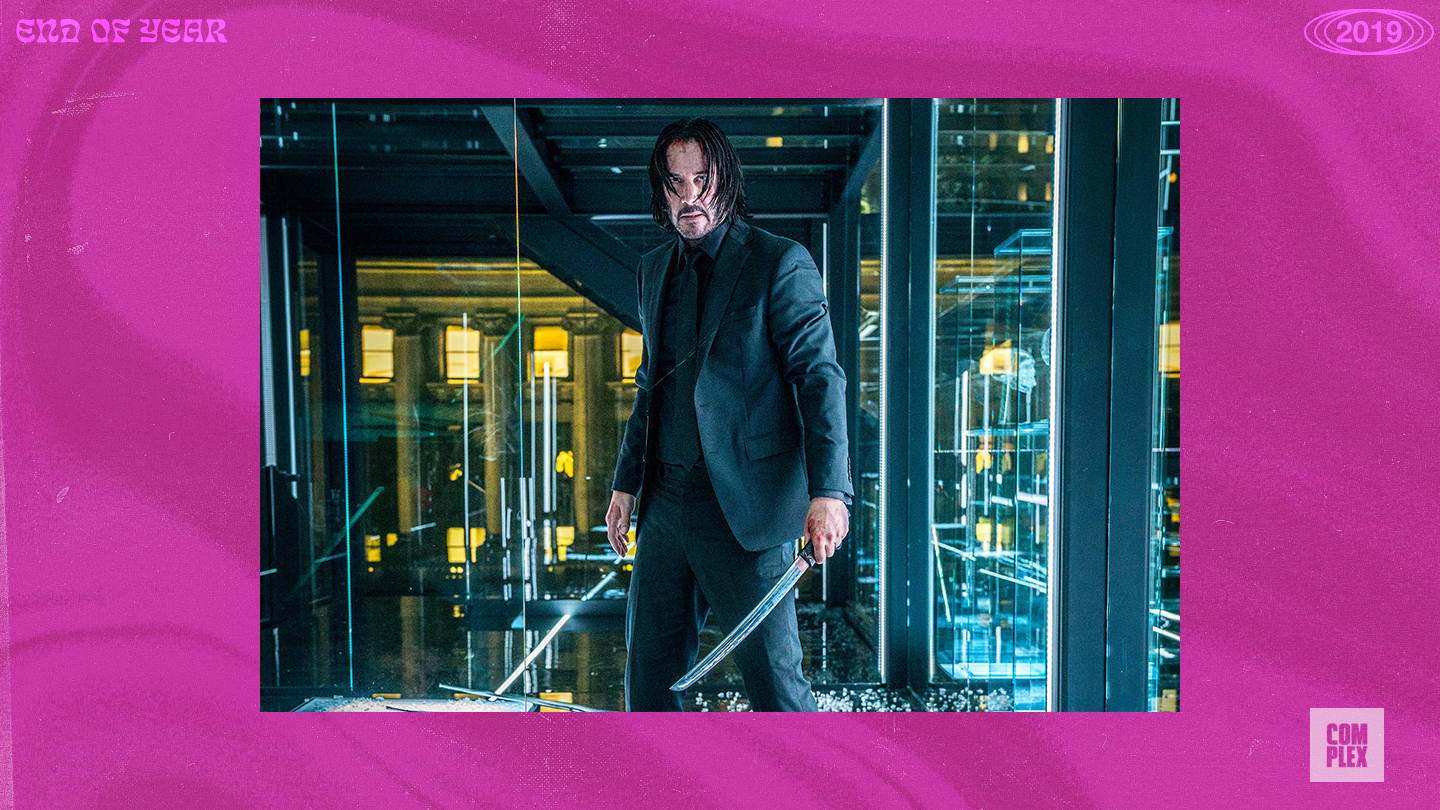
Director: Chad Stahelski
Stars: Keanu Reeves, Halle Berry, Laurence Fishburne, Mark Dacascos, Asia Kate Dillon, Lance Reddick, Anjelica Huston, Ian McShane
Studio: Lionsgate
There are about nine (nine!) big action setpieces in John Wick 3. All are fantastic and varied (though the horse kicks got a little repetitive), and as such, everyone has their favorite. Mine comes early in the film, as the titular hitman extraordinaire does battle with peers who have tracked him to an antique weapons shop. Naturally, the rustic knives and guns around them become fodder to the assassins in their assault and John in his defense. But that’s the key word there: naturally.
In 2014, when John Wick was but a mere pleasantly surprising B-movie with grade-A return on investment, its marvel lay in how deftly it executed its mission: to, quite simply, restore the feeling to the action genre, stateside, at least. Hand-to-hand combat scenes had lost all their luster; gunfights were barely distinguishable from a video game. (Remember, while Tom Cruise was working on his own restoration with Mission: Impossible 5, at this point that was still 10 months away.) The action in John Wick is gorgeous, choreographed with loving precision by two directors who came up as stuntmen/stunt coordinators, and their affinity for the poetry of combat is palpable. “There’s an arc to an action sequence, and you need to come out the other end knowing your character better and maybe the story has moved forward in a compelling way,” Wick co-director David Leitch once told me. “I think—and the audience may not realize it—how much you learn about a character during an action sequence and how much it defines the character.”
Leitch left Chad Stahelski to helm the sequels on his own, but true to his words, by Wick 3, the story and the choreography have marvelously changed with it to reflect—and advance—the narrative. John isn’t the well-rested, sleek killing machine of 2014’s neo-revenge tale. In-story, all three films cover about a week, two and a half at most. John Wick is burnt out, literally running on fumes. There’s a sense of inherent improvisation to the wins he ekes out—when he notices those knives, it’s a relief, and Keanu and Stahelski somehow make an obviously thoroughly choreographed scene still feel like it’s being freestyled and our frayed hero is winning by the skin of his teeth. And that, reader, is why an action movie with not much besides bullets, severed thumbs, and gloriously vicious attack dogs still registers as a movie of substance, precision, and deep thought.
World-building is what helped set John Wick apart, creating a fully realized universe of assassins and a dense, interconnected mythology for the characters at its center. World-building could very well take it down. It’s wonderful to see more of John’s history, from the ballet-company-leading Angelica Huston to, of course, Halle Berry, who threatens to murder Keanu on his own shit in an appearance that amounts to special guest star. These characters share rich backstories that are mercifully shown and not told. Conversely, the respect John commands from even his enemies is peak here, from his Japanese foe and his pupils who would rather fight their idol with honor than win on a cheat. Great stuff. Mirage-appearing, desert-dwelling assassin kings… less great. Asia Kate Dillon’s bureaucratic antagonist was only marginally better. A John Wick 4 is imminent. I can’t wait to see how they dream up sequences worthy of succeeding shit like motorcycle swordplay or a horse chase through Manhattan—as long as they remember to let the action tell the story, first and foremost. —Frazier Tharpe
5. 'Knives Out'
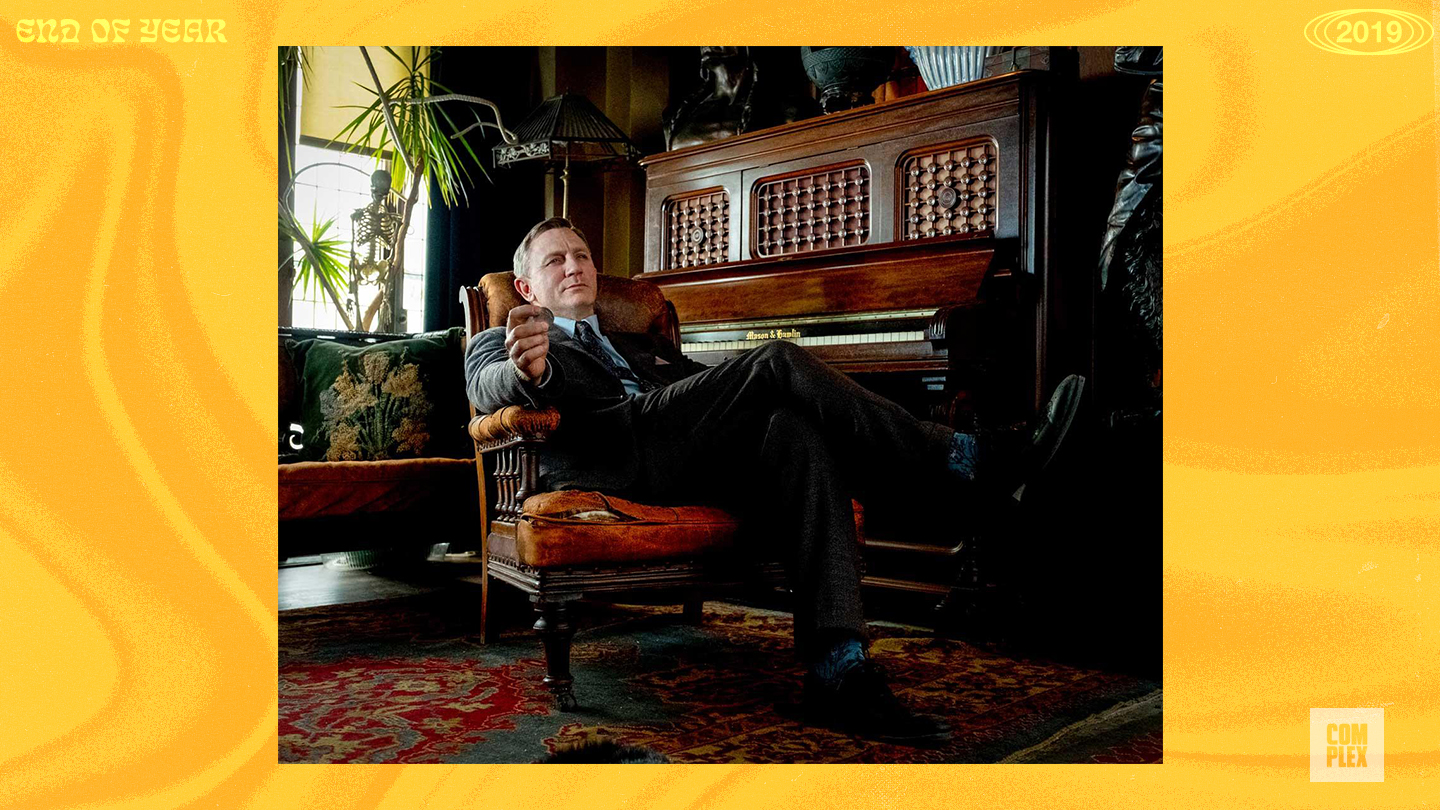
Director: Rian Johnson
Stars: Daniel Craig, Chris Evans, Ana de Armas, Jamie Lee Curtis, Michael Shannon, Don Johnson, Toni Collette, Lakeith Stanfield, Katherine Langford, Jaeden Martell, Christopher Plummer
Studio: Lionsgate
Most movies have what I like to call a “recommend moment.” It can be a scene or even just a line, that when asked by a friend for a thumbs up or down, you can give them your own little trailer. Knives Out doesn’t have one of these moments, but that’s only because the entire movie is one. Honestly, how could it not be? Boasting one of the greatest ensembles in recent memory, director Rian Johnson puts every cast member to work in unraveling his masterfully crafted script. Witty shenanigans, hilarious personalities, and some of the best dialogue of the year are pulled off to perfection by every actor present. But don’t be mistaken, this is no mere performance piece for the cast to cut their teeth on. Tightly contained to a few set locations, Knives Out is a pressure cooker of suspense, never squandering a moment in building its Agatha Christie-style mystery. The second you think you have it figured, it twists and turns, upping the stakes to keep you guessing the entire ride through, and desperate to find out whodunit. —Nate Houston
4. 'Once Upon a Time... in Hollywood'
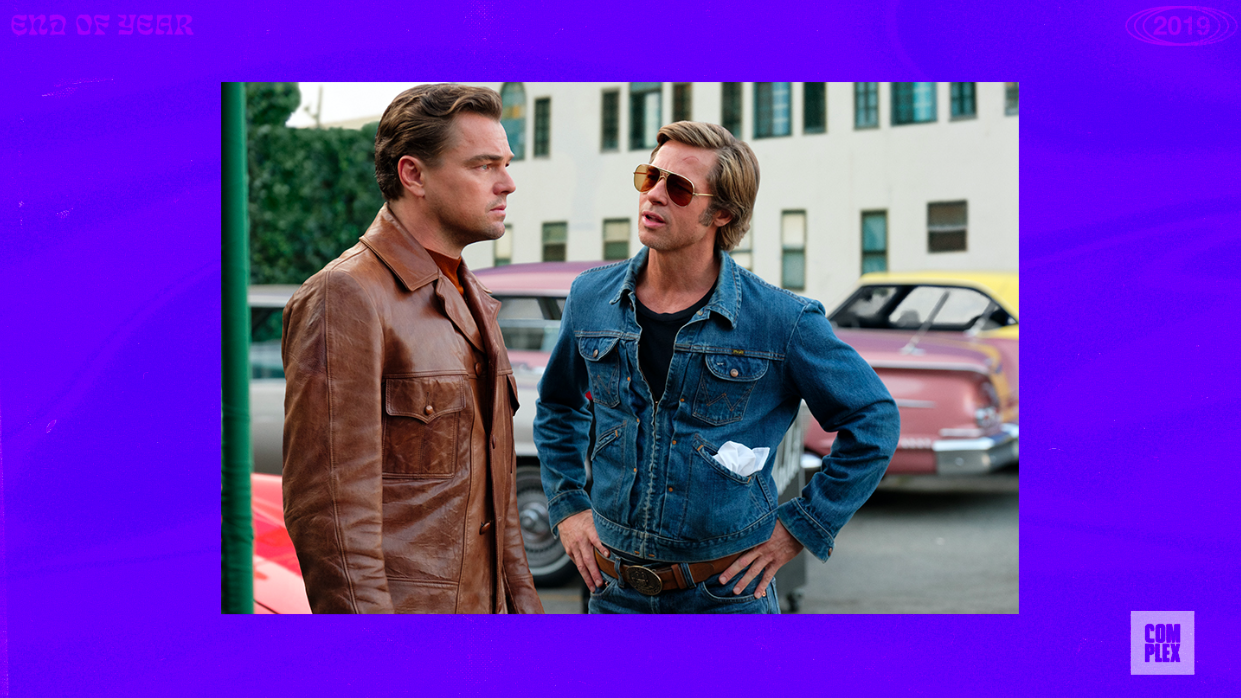
Director: Quentin Tarantino
Stars: Leonardo DiCaprio, Brad Pitt, Margot Robbie, Emile Hirsch, Margaret Qualley, Timothy Olyphant, Austin Butler, Dakota Fanning, Bruce Dern, Al Pacino
Studio: Sony Pictures Releasing
In 2007, when Matthew Weiner previewed his '60s-era drama Mad Men for the TV critic Alan Sepinwall ahead of the pilot, he teased, "It's about time travel." I thought back to that quote following my second time watching Once Upon a Time... in Hollywood in its opening weekend, a movie that isn't merely set in 1969 Los Angeles so much as it fully immerses us in it. From sensory flourishes like the radio to, of course, the aesthetics like the landmark neon signs that illuminate the city to the Hollywood universe and its interweaving cast of characters (Cliff Booth's run-in with Bruce Lee is the front-page news, sure, but note Sharon's flashback to training with him as she watches her big fight scene in the theater), Once Upon a Time is as if Tarantino hopped on the nostalgia carousel and got stuck there. And much like Mad Men, the movie is less a pulp thriller with history-altering implications than it is a living, breathing snapshot of a culture on the verge of a seismic shift, simultaneously a love letter to both the mid-transformation era it depicts and the golden years its leads long to recapture in vain. Tarantino recently described the film as his climax, with his proposed 10th and final film set to be more of an epilogue than a big finish. He needn't have explained it; it's a sentiment the movie already gives off on its own. This isn't his best movie, but, nonetheless, it does feel like a summation of everything that preceded it.
The fictional tales woven into real-life tapestries (Inglourious, Django), the Western affinity (Hateful Eight), homing in on stuntmen to symbolize his fascination with the era (Death Proof's Stuntman Mike)...this is what he's been building towards since at least the back half of his career, and I'm sure more thematic connections to more of his films will continue to reveal themselves upon further scrutiny. In lieu of having a larger statement (or, hell, just a use for) the Manson children beyond window dressing, Once's detractors argue for a Point. But what better way for the video store clerk cinephile to begin bowing out than to make a movie about the movies? This is the era that made Tarantino who he is, that informed every classic he's given us since 1992. It features, in spots, some of his most graceless writing (the narration to bridge Acts II and III is just clumsy, ain't no way around it); it features some of his most subtly stylistic directing, like the way the camera never widens or swivels when Rick flubs a take on the Lancer pilot, lest we realize we're on a set not *in* the TV show, with the camera going so far as to literally reset when the scene winds back.
I wanted more texture to the Manson family beyond Cliff's excellent visit to the ranch; I wanted more context to them beyond just showing up on Cielo Drive with knives. What we got, even amid face-bashing and flamethrowing, is Tarantino's most sentimental film to date, a meta-commentary that reckons with themes of obsoletion and value both personal and professional. It's filled with more detours and non-sequiturs than some might like, but how much can you really complain about a scenic route as beautiful as 1969 Sunset Boulevard? Once the clash of expectation versus artistic vision settles, I expect we, as a community, will be debating Once Upon a Time... in Hollywood's value for years to come—and maybe raising it higher in Tarantino's filmography as time passes. —Frazier Tharpe
3. 'Parasite'

Director: Bong Joon-ho
Stars: Song Kang-ho, Lee Sun-kyun, Cho Yeo-jeong, Choi Woo-shik, Park So-dam
Studio: CJ Entertainment
No film has taken us through more surprises and more suffering this year than Parasite. Writer and director Bong Joon Ho’s unforgiving look at class inequality is one of the most thrilling and haunting stories this year. Seemingly a film about one family’s manipulation of another, Parasite is an unflinching microcosm of capitalism’s ability to pit the multiples tiers of the working class against each other, driving them to commit acts of cruelty for the unselfish sake of survival while the wealthy elite rest on, and benefit from, their endless struggles.
We watch the Kim family’s stealthy infiltration into the Park family’s household with voyeuristic delight and quasi admiration—they’re finally crawling out of the grip of poverty through sheer wit and determination. We root for them to escape their basement apartment and their claustrophobic neighborhood with the hopes that they will reach the laurels of the middle class. But, of course, the moment that we feel that those dreams are palpable, the film takes a sharp turn into a surreal nightmare, spiraling into a struggle between families almost literally pushing each other down in the quest to move up. The desire to reach the top of the socioeconomic pyramid inextricably thrives on the existence of an overwhelming lower tier. Parasite a masochistic societal portrait fueled by a rage and desperation that can only lead to a devastating ending, but one that’s rooted in brutal reality. —Andie Park
2. 'The Irishman'
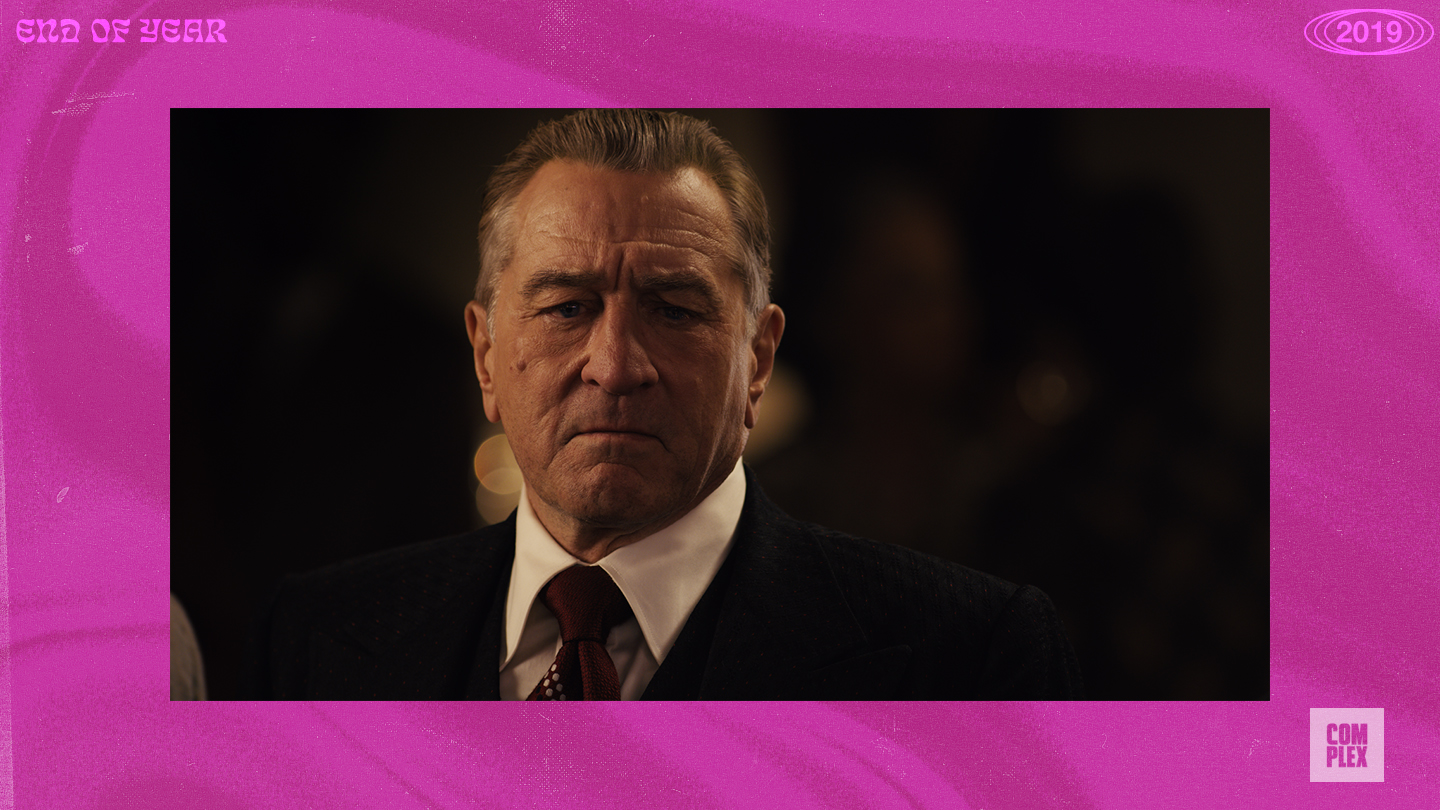
Director: Martin Scorsese
Stars: Robert De Niro, Al Pacino, Joe Pesci
Studio: Netflix
What is there to say about the Irishman that hasn’t been said about every Martin Scorcese masterpiece ever made? That it’s an exercise in excellence? That it’s one of the greatest mob movies ever made? That it’s a film about Catholic Italian-American Mafia male norms and the prices they pay for such behavior? That it’s cinema, not that superhero crap that these mouth-breathing jamokes go crazy over? Marty has shown how this way of life never pans out in the long run but never in this way. Instead of glorifying the life at times in films like Goodfellas and Casino, The Irishman unravels the way time does: slow, yet deliberate. While some may say the movie drags, I say so does life sometimes. The Holy Trinity of mob actors—Joe Pesci, Robert DeNiro, and Al Pacino—all give masterclasses in acting. Pesci came out of retirement to give us the performance of his life; Pacino reached back in his bag of tracks to deliver us a Jimmy Hoffa that will surely never be topped; and DeNiro played the stoic Frank Sheeren as he portrays a man who sacrificed his family for another. The Irishman lived up to the hype in my book and Martin Scorsese once again showed why he’s the greatest living, American director. —Angel Diaz
1. 'Uncut Gems'
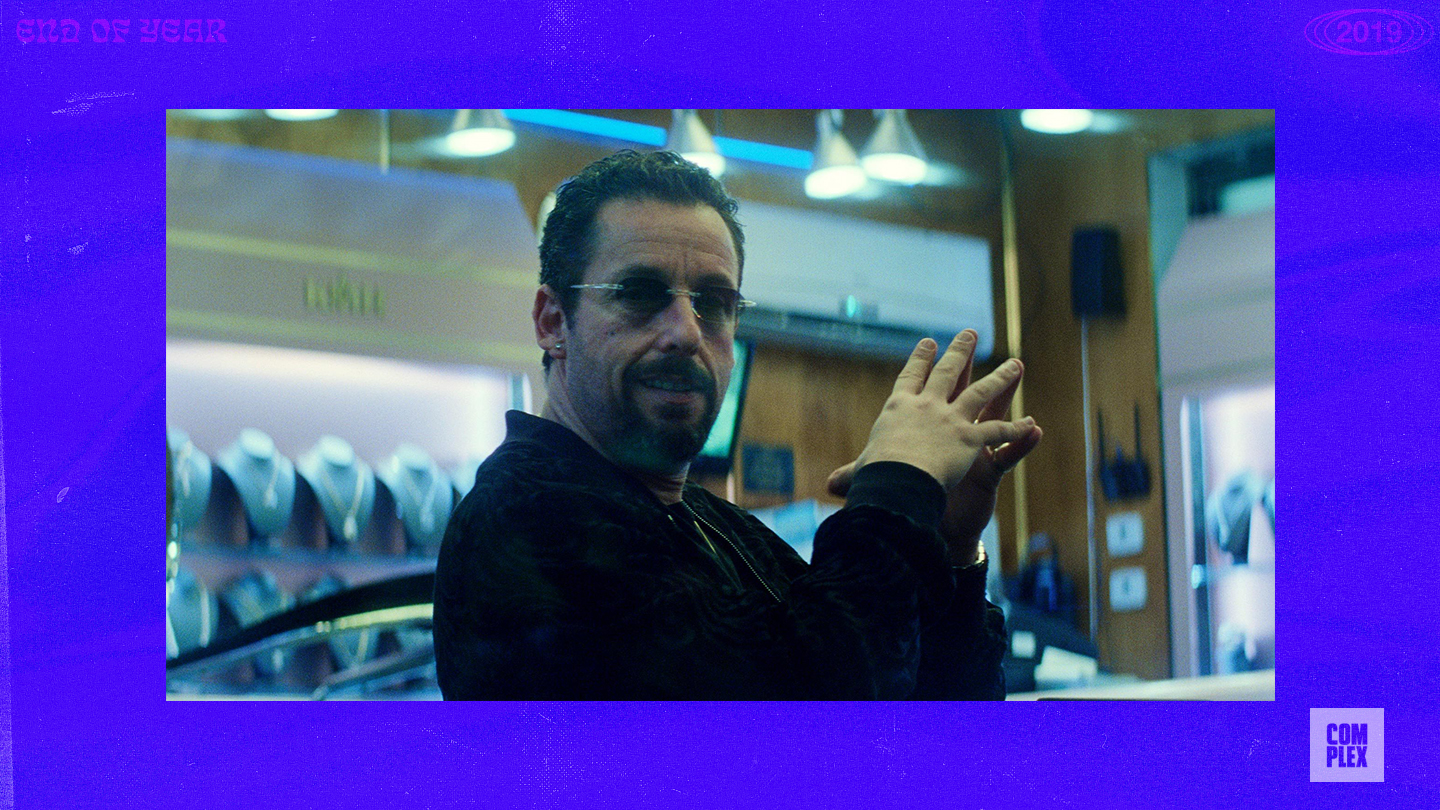
Director: Josh Safdie, Benny Safdie
Stars: Adam Sandler, Lakeith Stanfield, Julia Fox, Kevin Garnett, Idina Menzel, Eric Bogosian, Judd Hirsch, Keith Williams Richards, Mike Francesa, Jonathan Aranbayev, Noa Fisher, Abel Tesfaye
Studio: A24
Uncut Gems releasing (widely, at least) during the holidays actually makes perfect sense. It's hard to immediately recall the last time prestige critical acclaim and a true-blue crowd-pleaser lined up this congruously. Here's a movie helmed by film media darlings, on a totally original, IP-less script (although I would totally watch a Howard Ratner versus Connie Nikas team-up in the Safdie Cinematic Universe) that would nonetheless have a high success rate among all varying members of the family for the post-dinner watch.
I saw it for the first time almost three months ago. It was one of the most visceral movie-watching experiences I'd had in a long time, an experience that's stayed with me thus far. As the movie spreads, I'm hearing reports of similar viewing interactions. A crowd of people shooting out of their seats during a pivotal tipoff. Outcries during the ending. Uncut Gems might not even be as consistently intense as the Safdie brothers' previous rollercoaster Good Time—there are more moments to breathe at least, before the cart goes full tilt in the final 30 minutes—but nevertheless, it's a shot of pure adrenaline to the heart, served with a side of substance.
This movie couldn't work without Sandler, whom the brothers pluck from the rolling hills of Netflix Mount Olmypus and cast down into an uber-specific circle of hell: Manhattan's Diamond District. But pitch-perfect casting is just one piece of a puzzle that goes into creating a new, all-time character. The movie works because of how deeply realized Sandler's Howard Ratner is on all levels of production, from Sandler and his castmates analyzing his every decision, to costume, to the brothers' deep reverence of him to a point they deem calling him an "antihero" as derisive. And it's that emotional investment, that perfect mix of sleaze, charm, empathy, pity, and even a little admiration that leaves the film lodged in your brain long after the fact and begging for a rewatch.
If Good Time was the critically acclaimed major-label debut, Gems is the mainstream-aspiring double-down aiming straight at Album of the Year. Whether it'll get that far is unclear, and also beside the point. What it does, unequivocally, is confirm the Safdies as auteurs who are here to stay, with a loyal and equally audacious creative group behind them. A handful of veteran directors put out some of their best work in 2019. The Safdies are the future. They represent the future Scorsese wants, which is probably why he produced Gems, even as he pens NYT op-eds bracing for a cinematic dystopia. Betting on the new class to keep the art alive against all odds? That's how we all win. —Frazier Tharpe
SHARE THIS STORY
